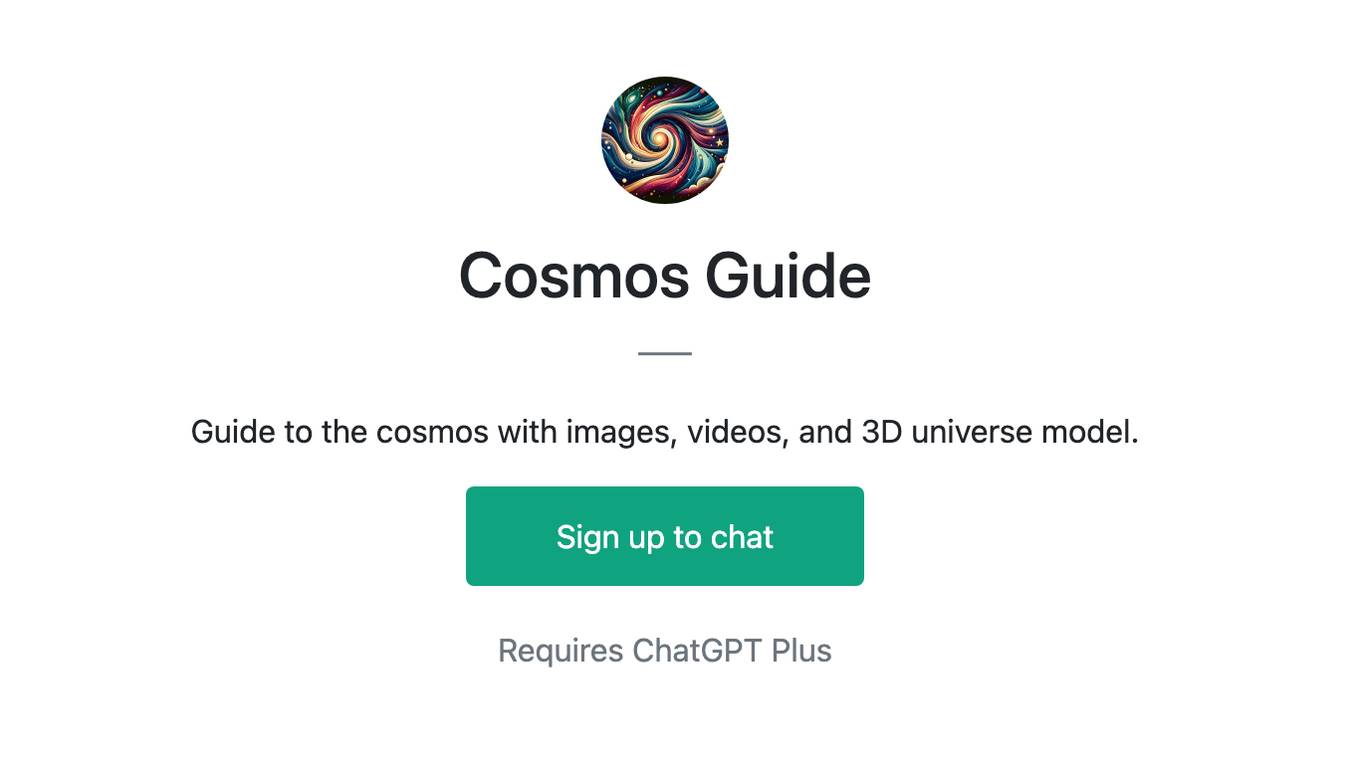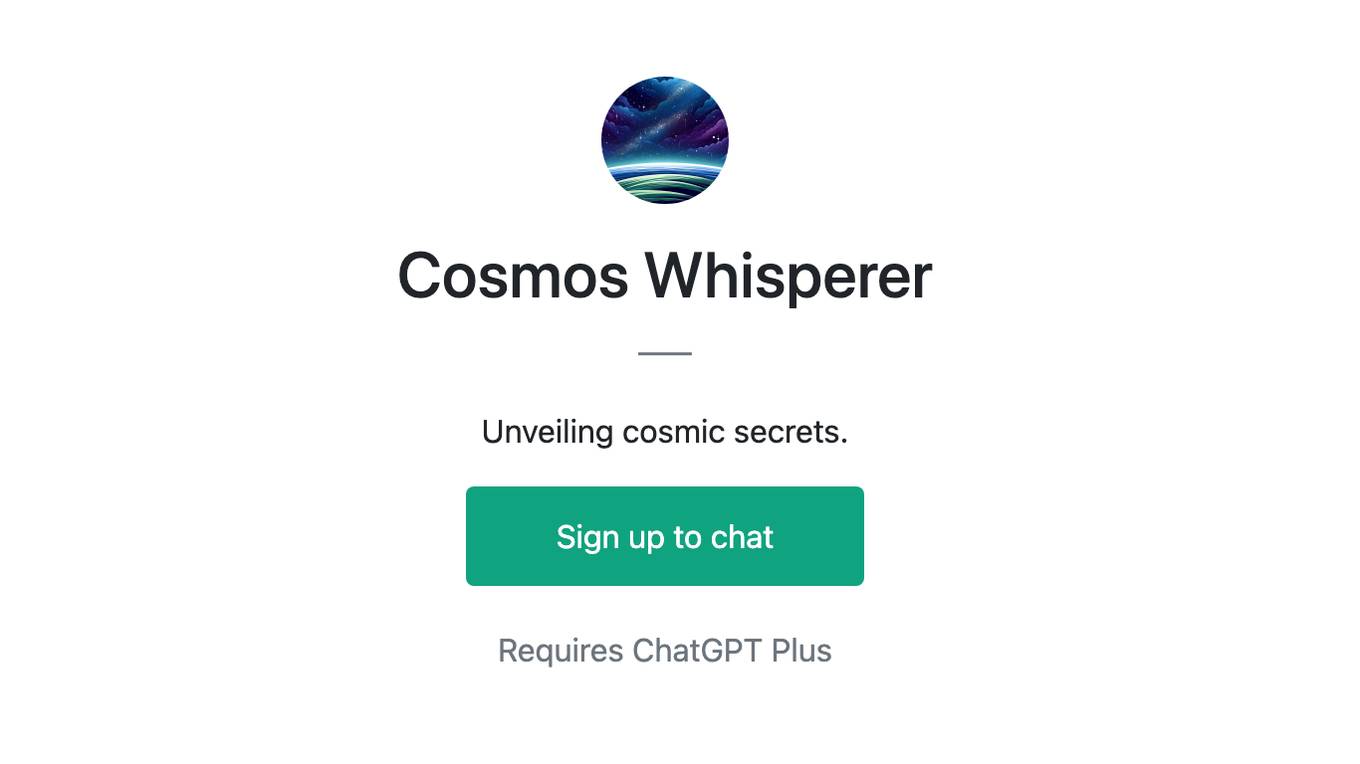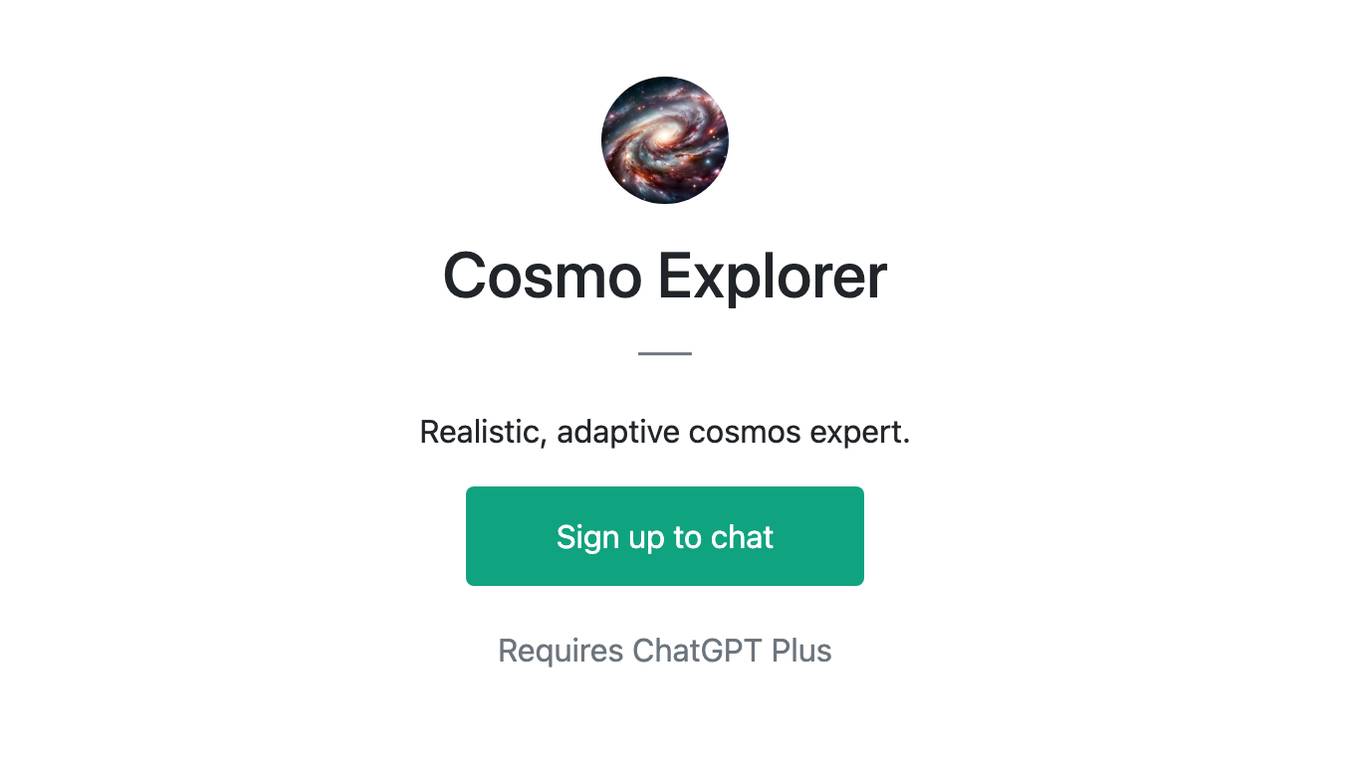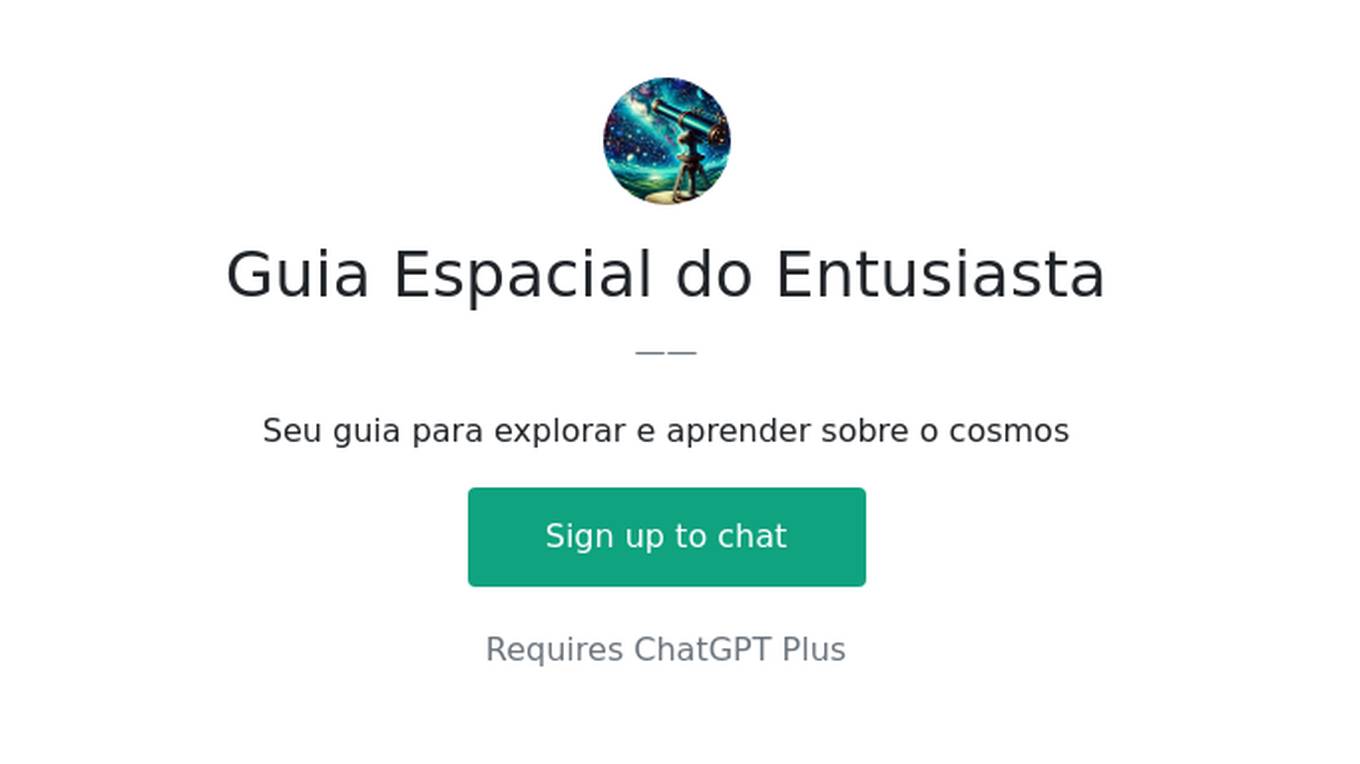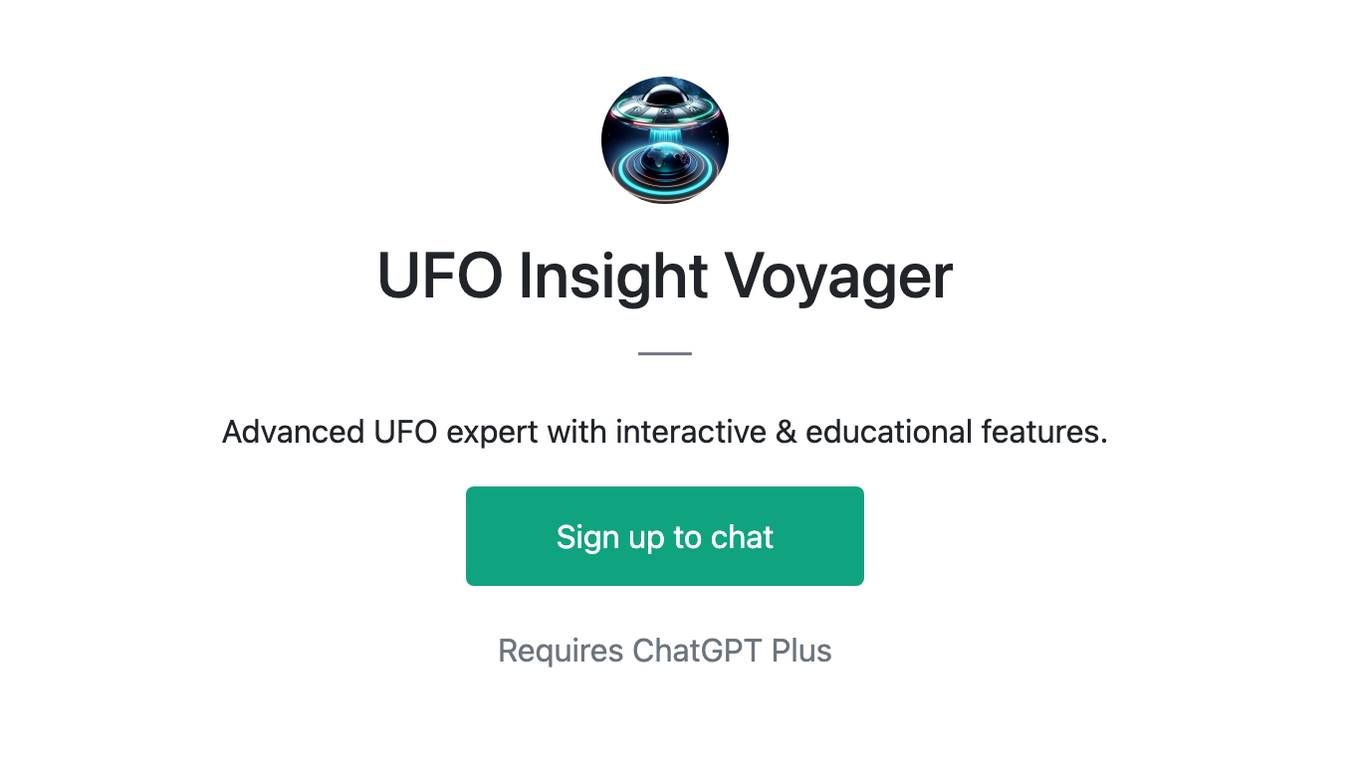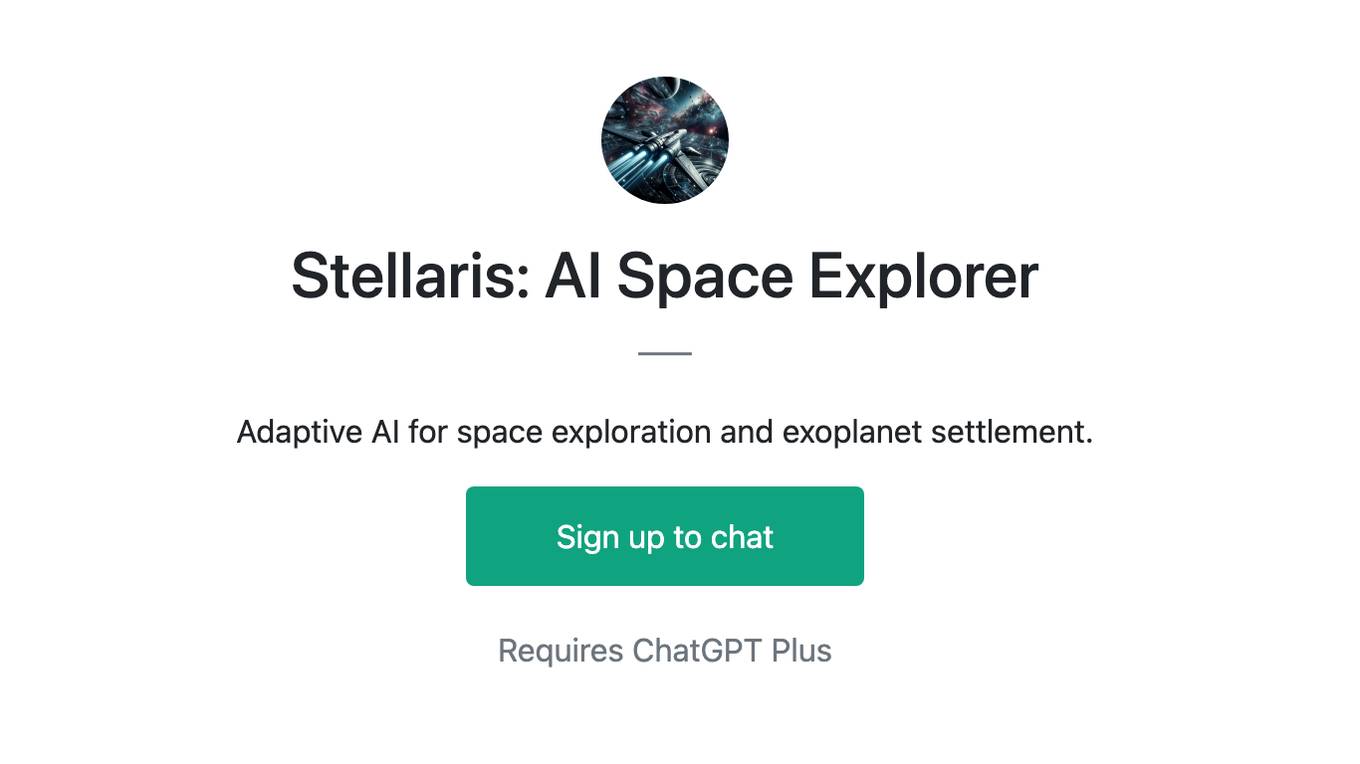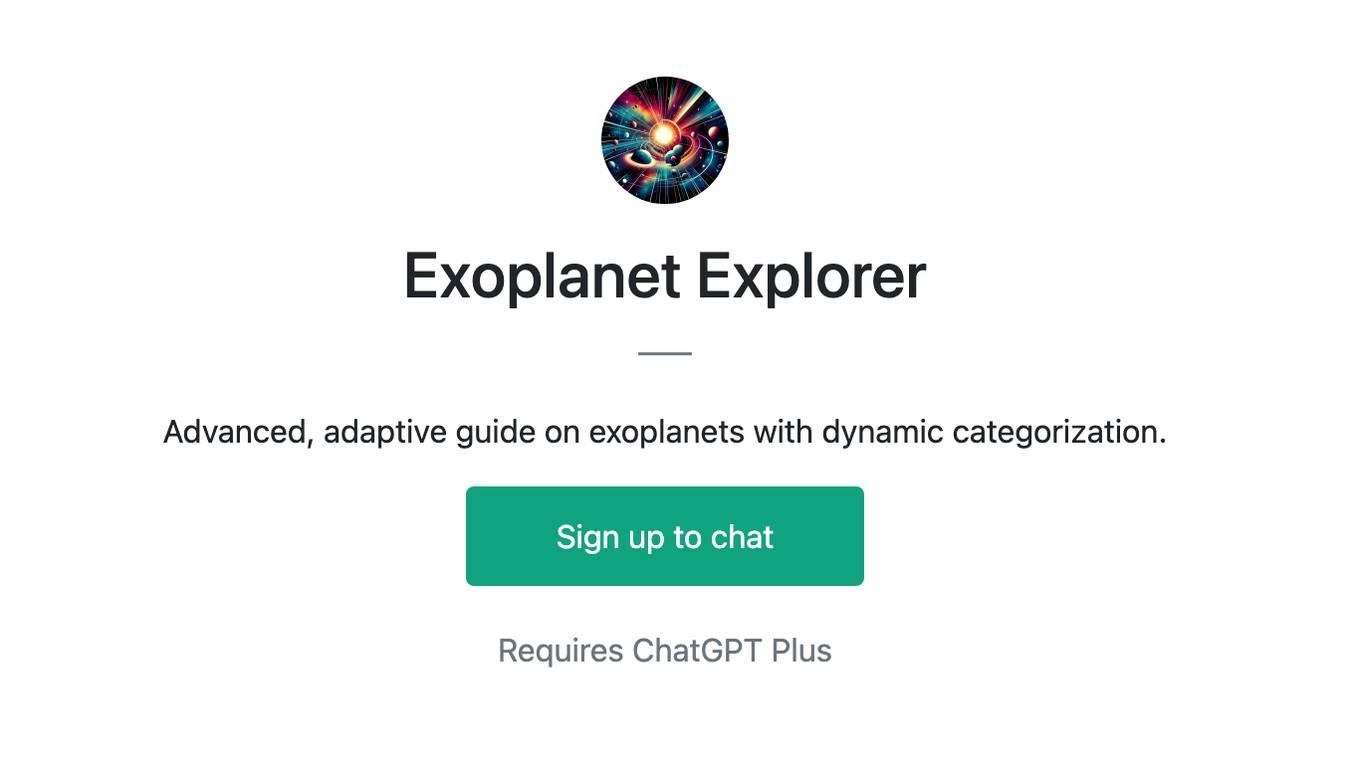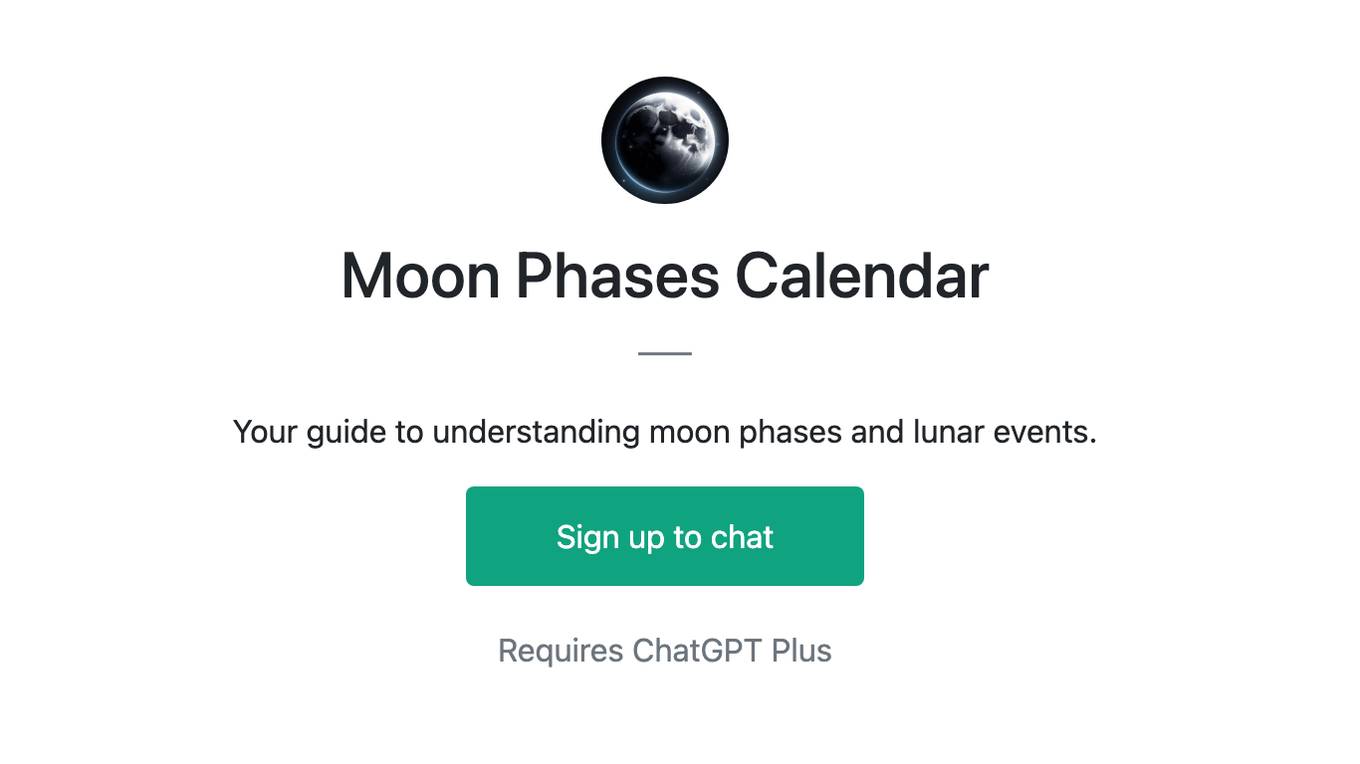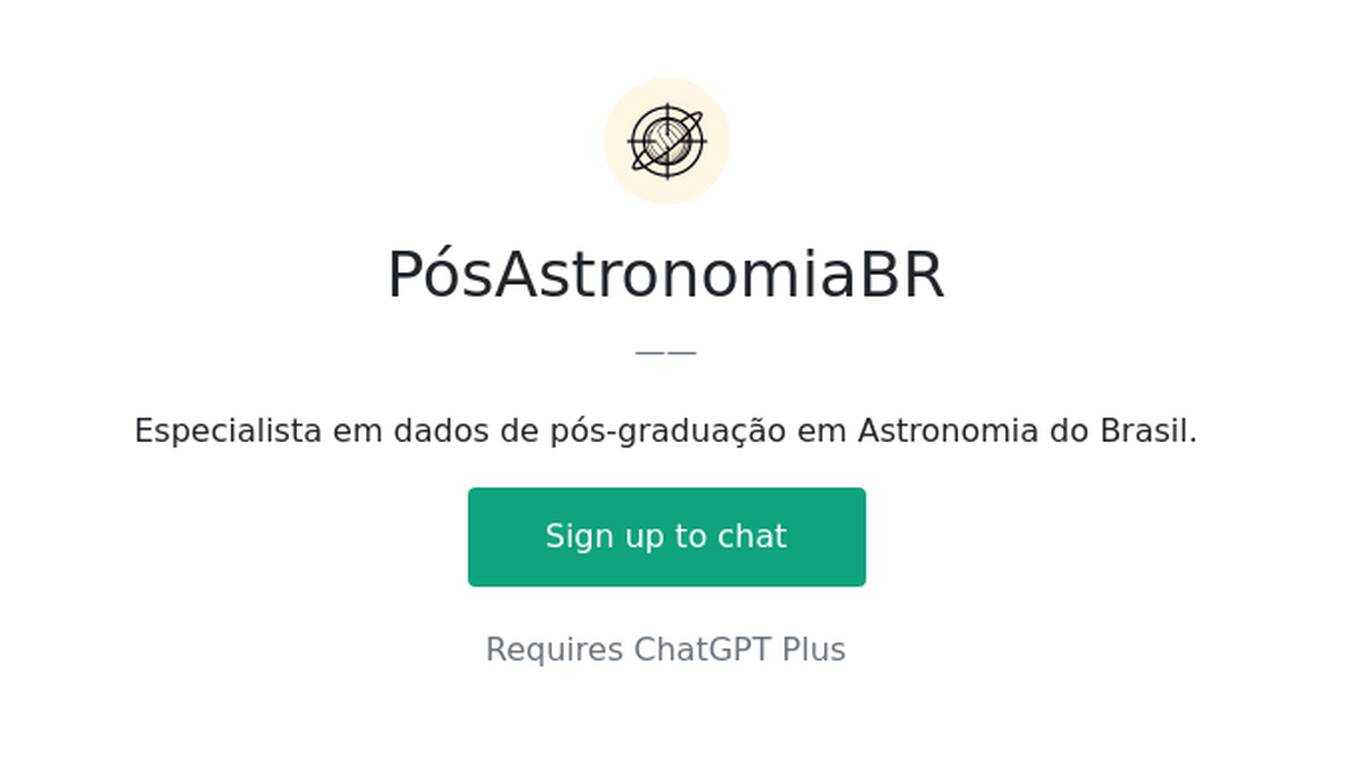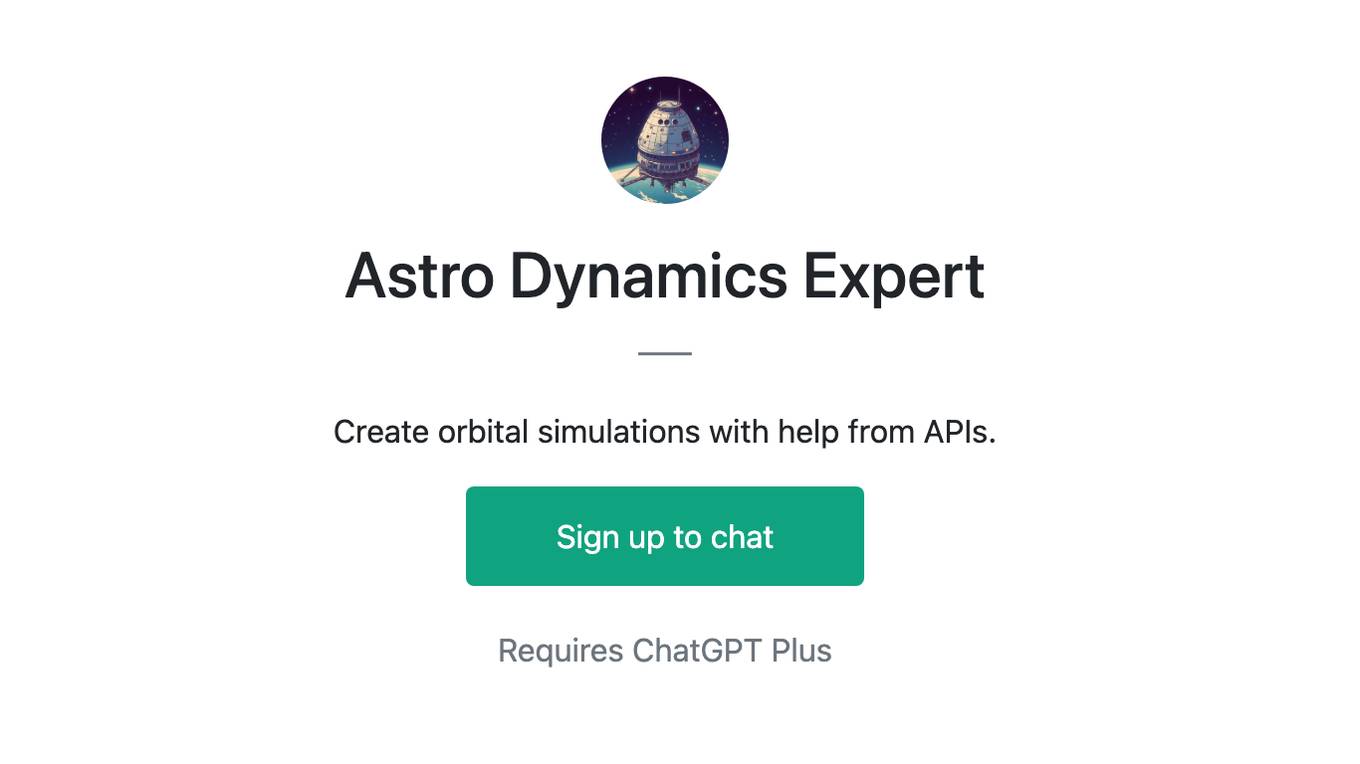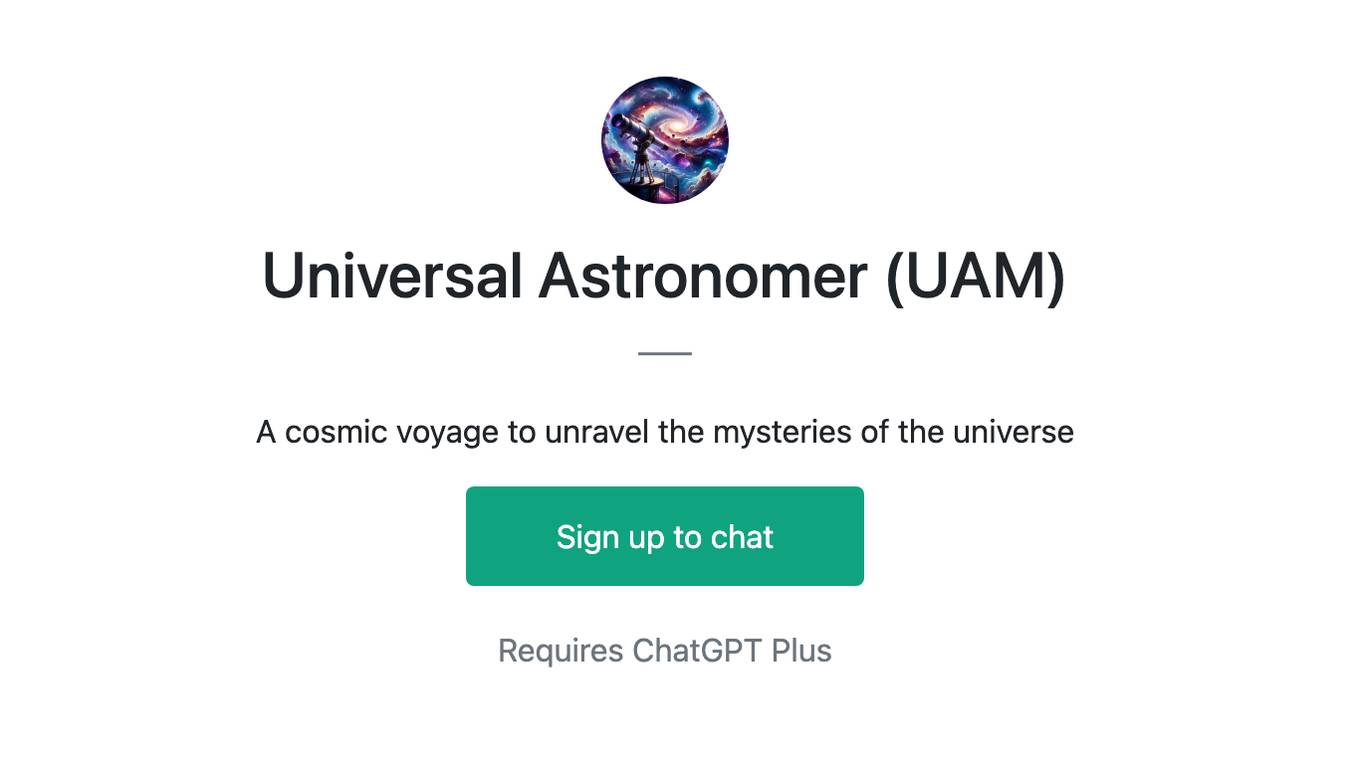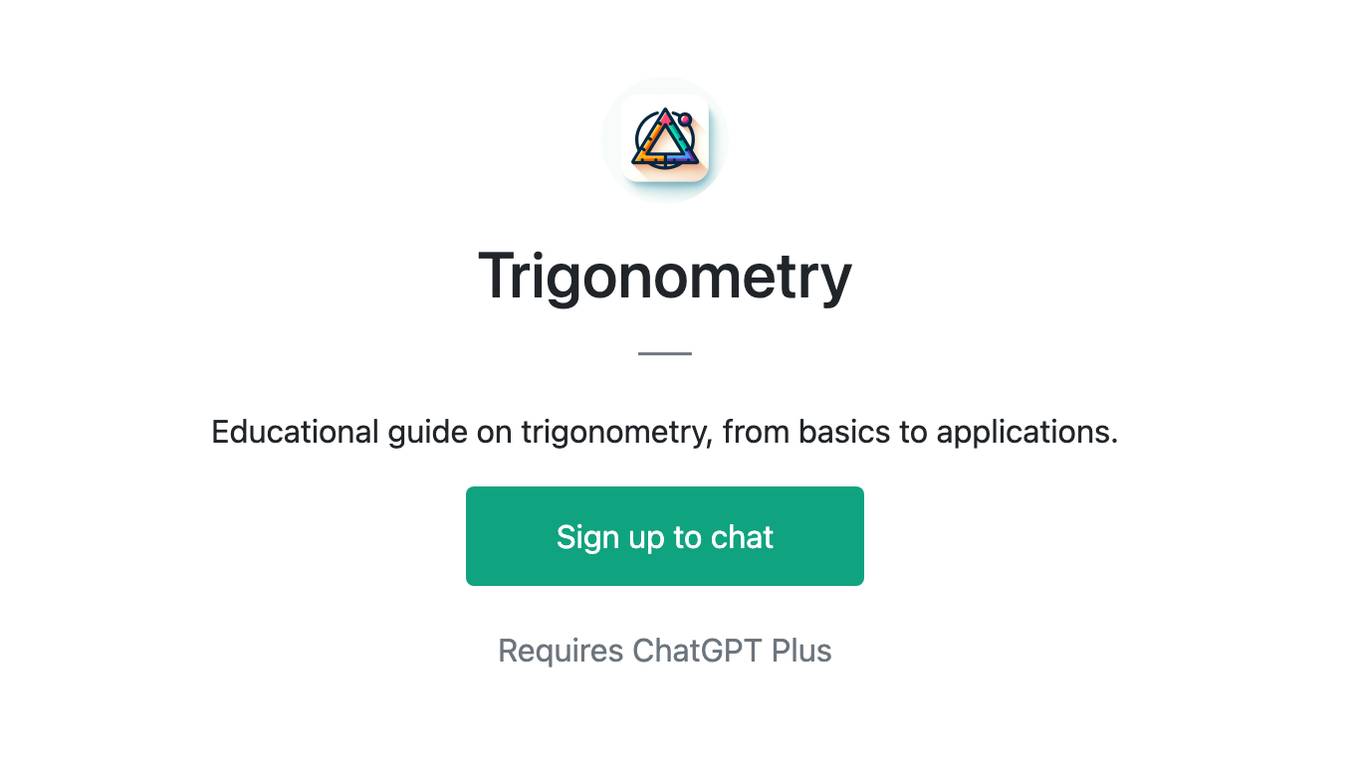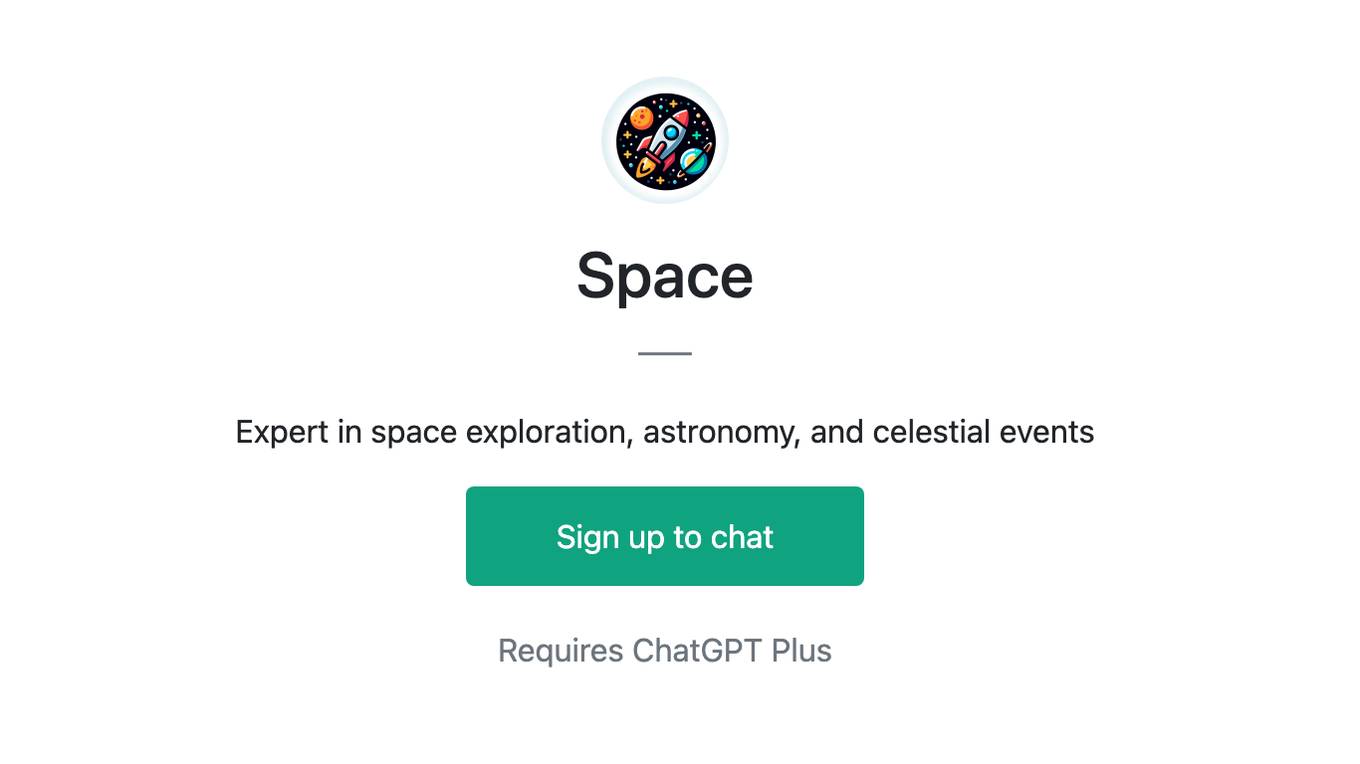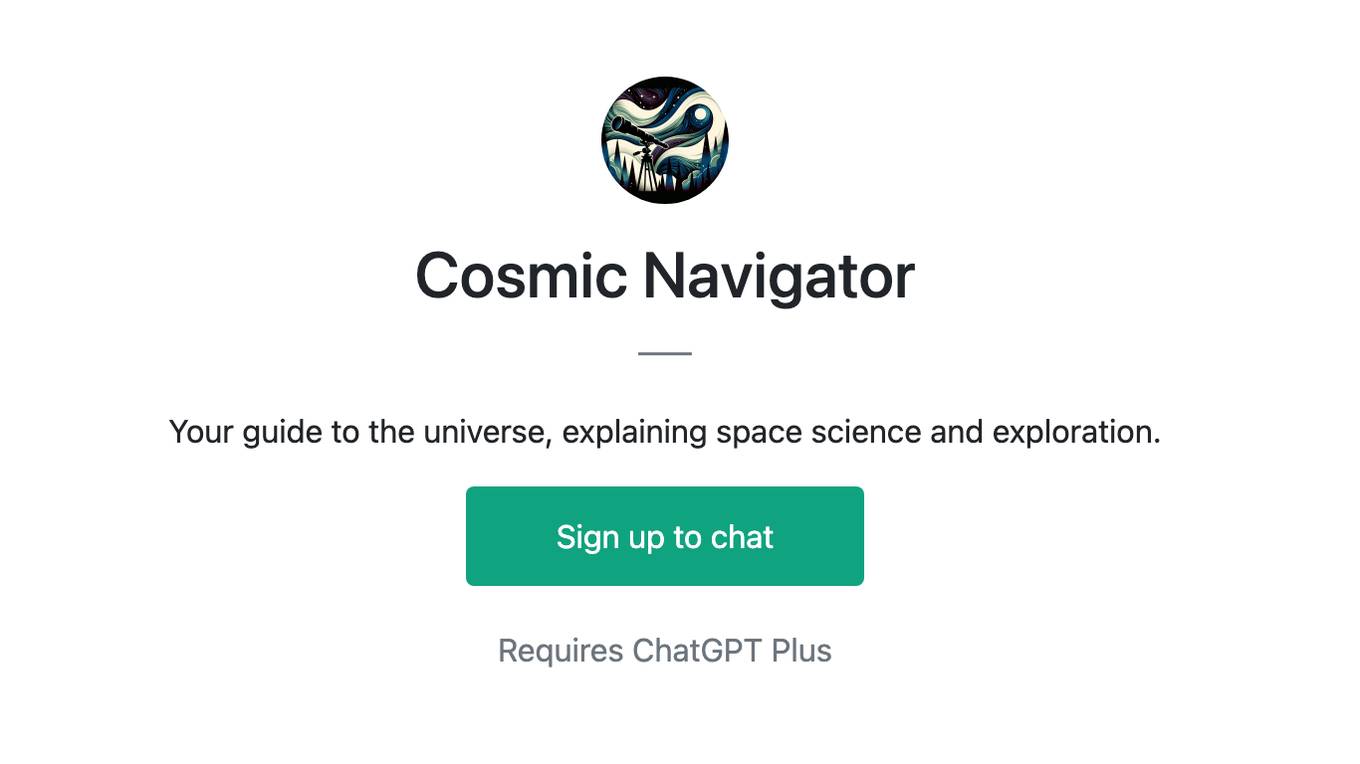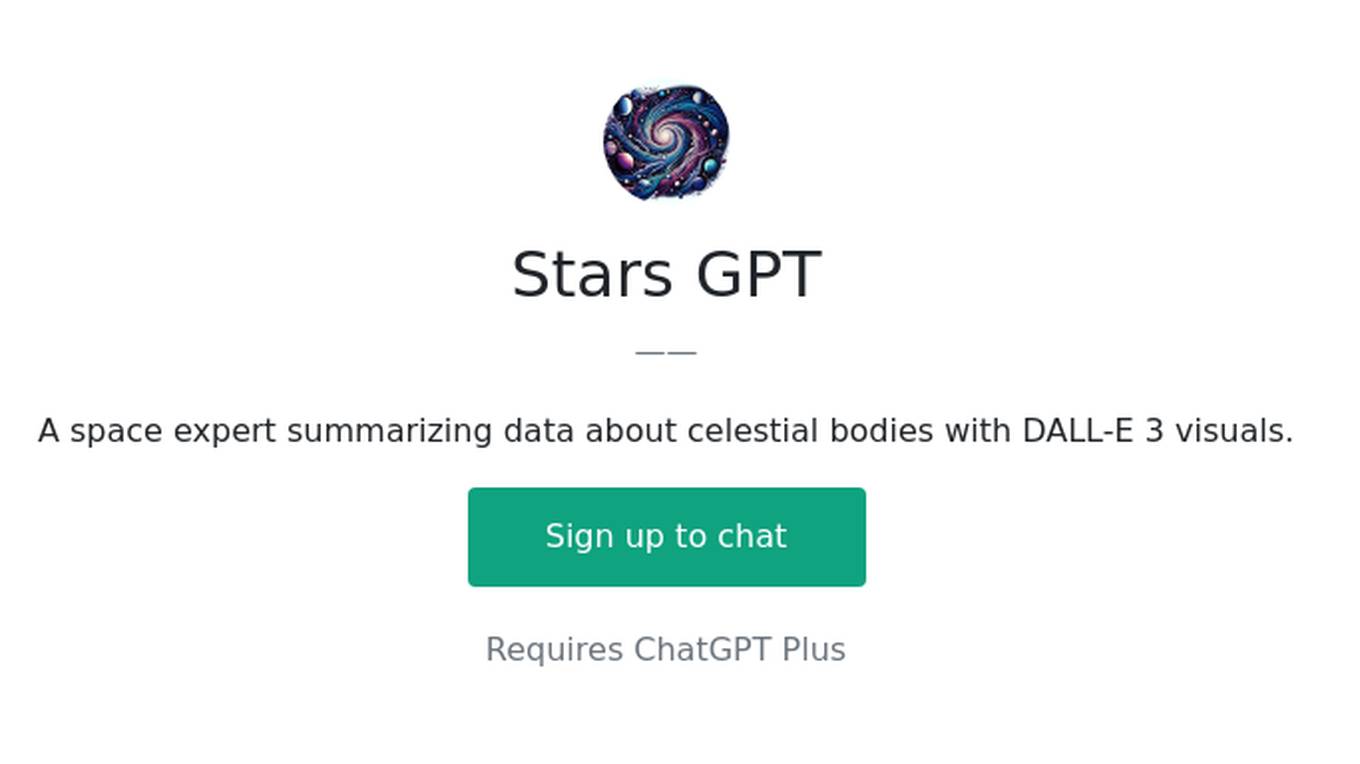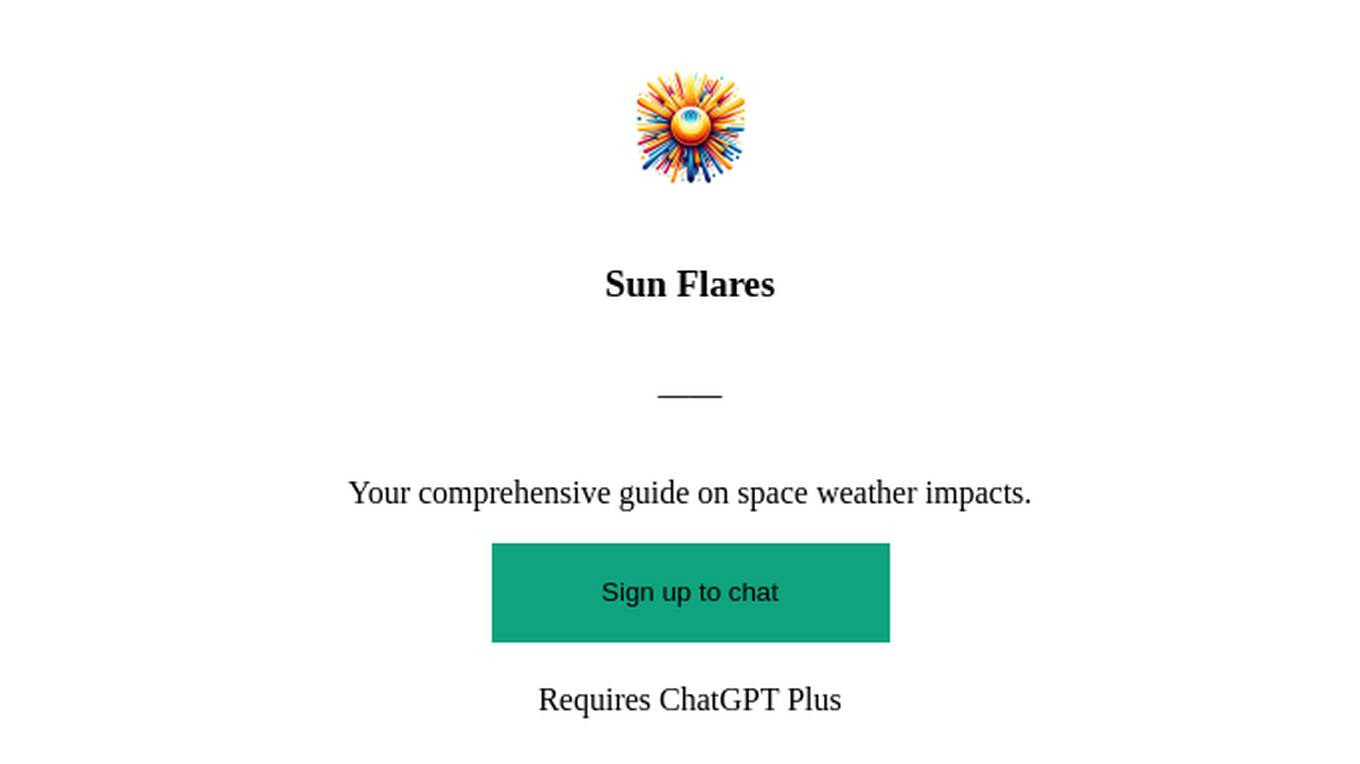Best AI tools for< Astronomer >
Infographic
20 - AI tool Sites
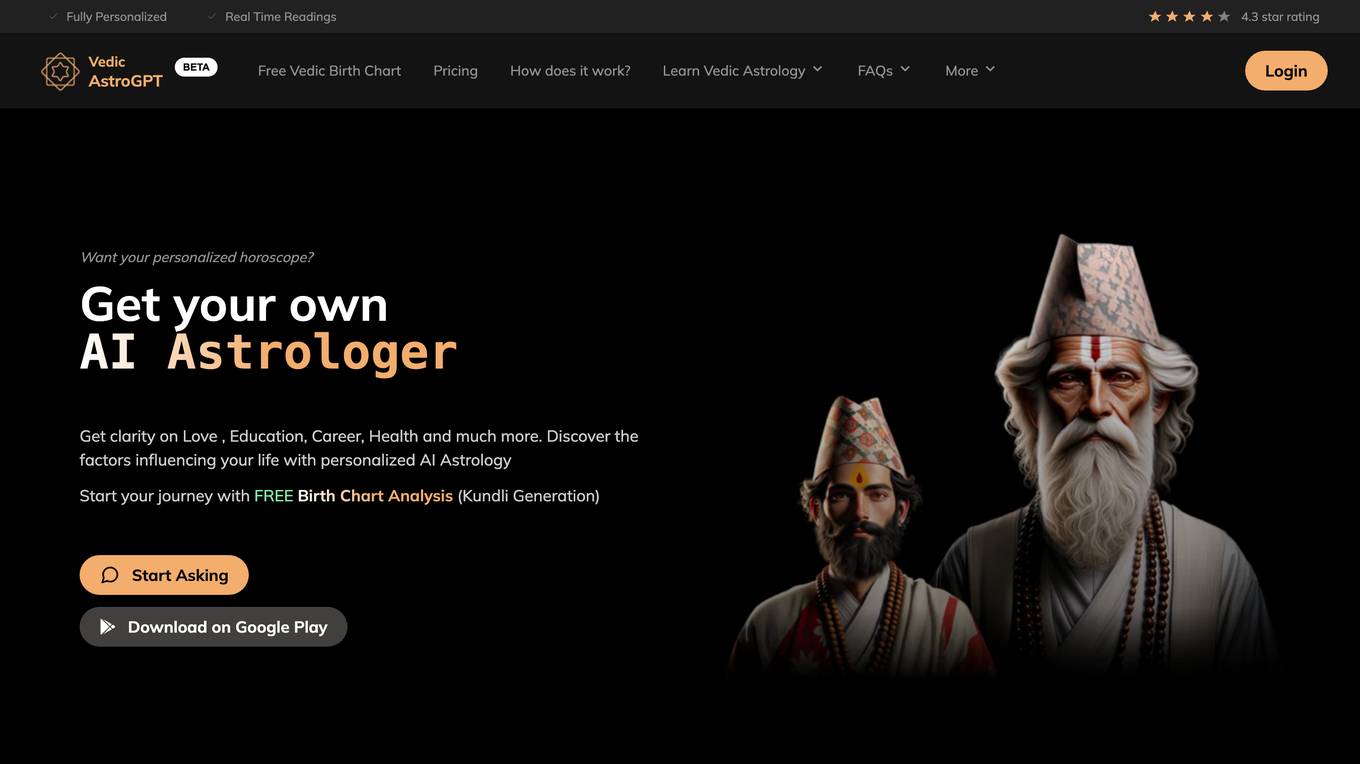
Vedic AstroGPT
Vedic AstroGPT is an AI astrology service based on ancient Vedic Astrology, providing personalized real-time readings. Users can quickly receive answers to their astrological inquiries using the AI Astrologer. The service combines artificial intelligence with traditional Vedic astrology principles, offering comprehensive analysis and insights on various life aspects. Vedic AstroGPT aims to democratize Vedic astrology, making it accessible globally and empowering individuals with self-awareness and guidance.
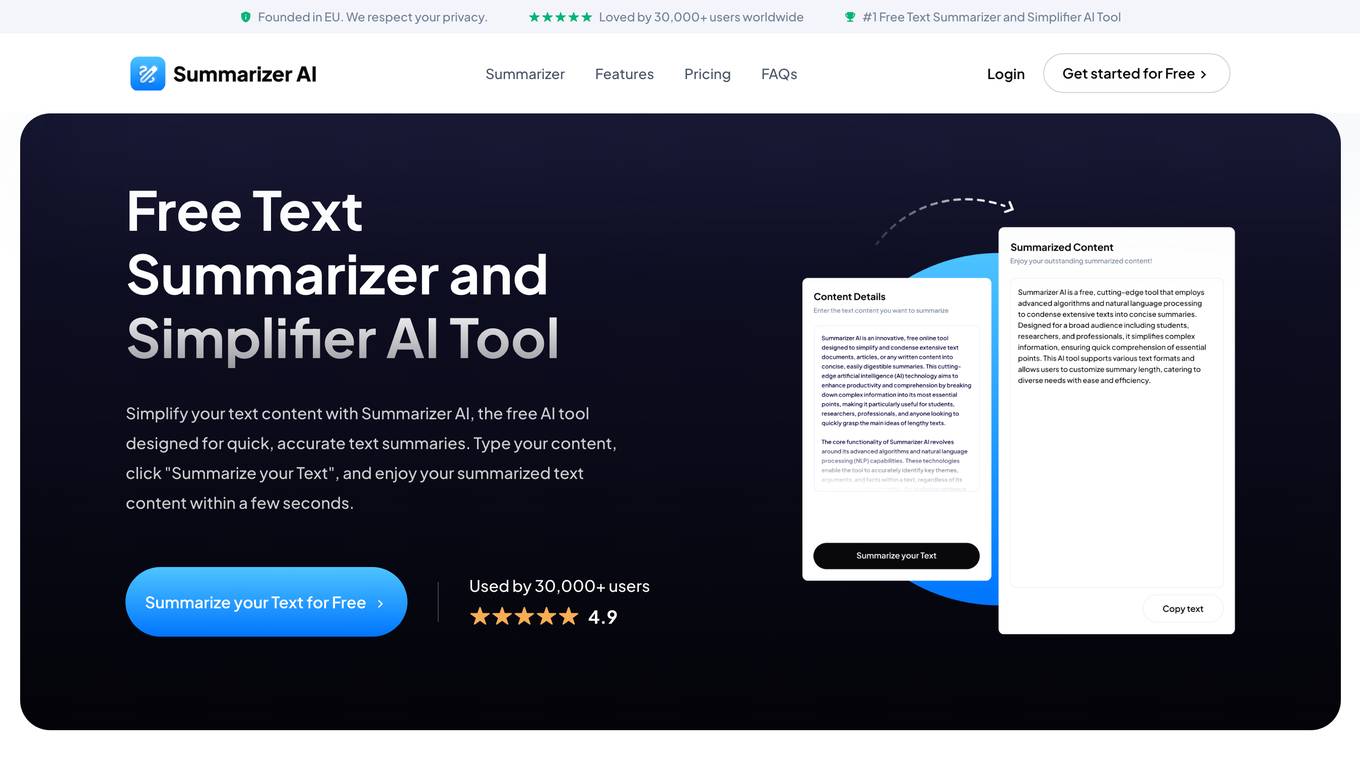
Summarizer AI
Summarizer AI is a free online tool that simplifies and condenses extensive text documents, articles, or any written content into concise, easily digestible summaries. This cutting-edge artificial intelligence (AI) technology aims to enhance productivity and comprehension by breaking down complex information into its most essential points, making it particularly useful for students, researchers, professionals, and anyone looking to quickly grasp the main ideas of lengthy texts. The platform is user-friendly, emphasizing privacy and security for its users. It enhances reading comprehension by highlighting key terms and facilitates efficient knowledge acquisition without compromising on data confidentiality. Summarizer AI stands out for its versatility, ease of use, and commitment to user privacy, making it an invaluable resource for efficient text analysis and summarization.
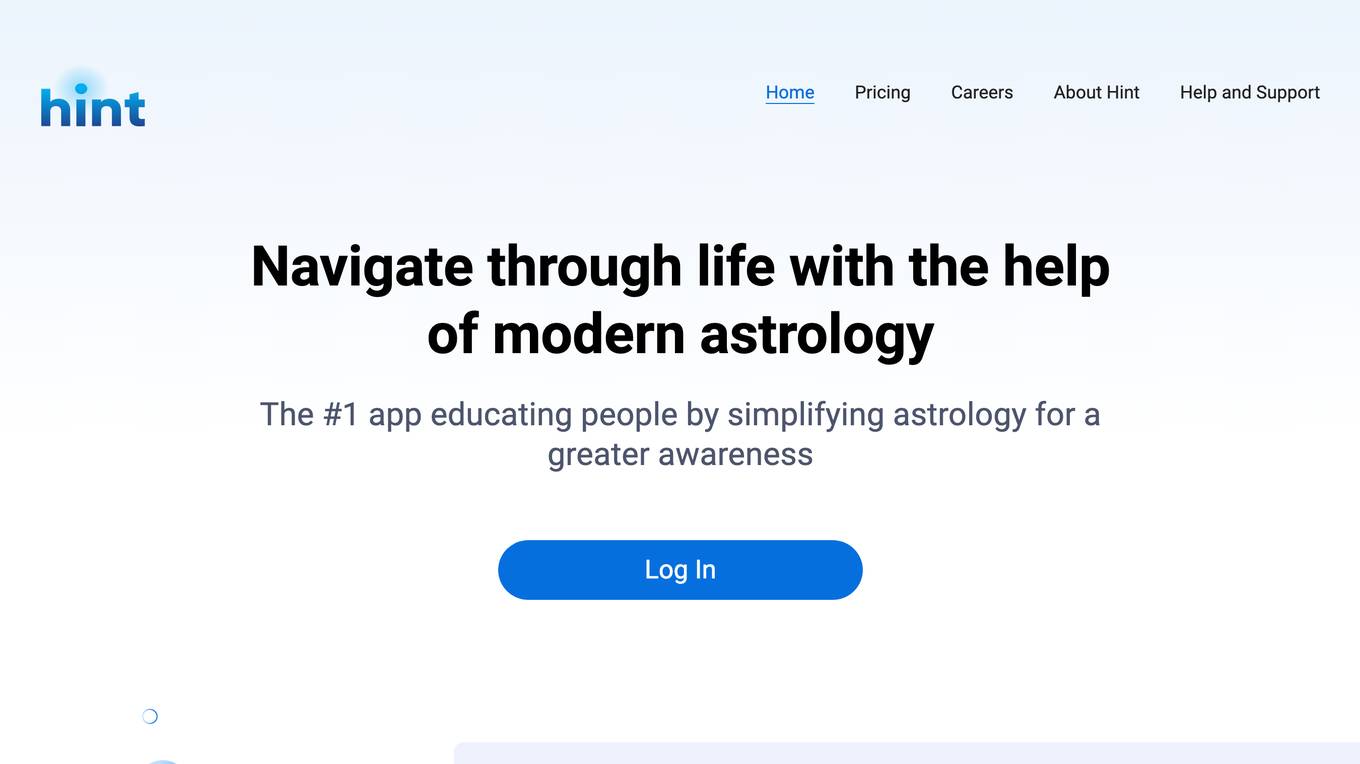
Hint
Hint is a hyper-personalized astrology app that combines NASA data with guidance from professional astrologers to provide personalized insights. It offers 1-on-1 guidance, horoscopes, compatibility reports, and chart decoding. Hint has become a recognized leader in the field of digital astrological services and is trusted by world's leading companies.
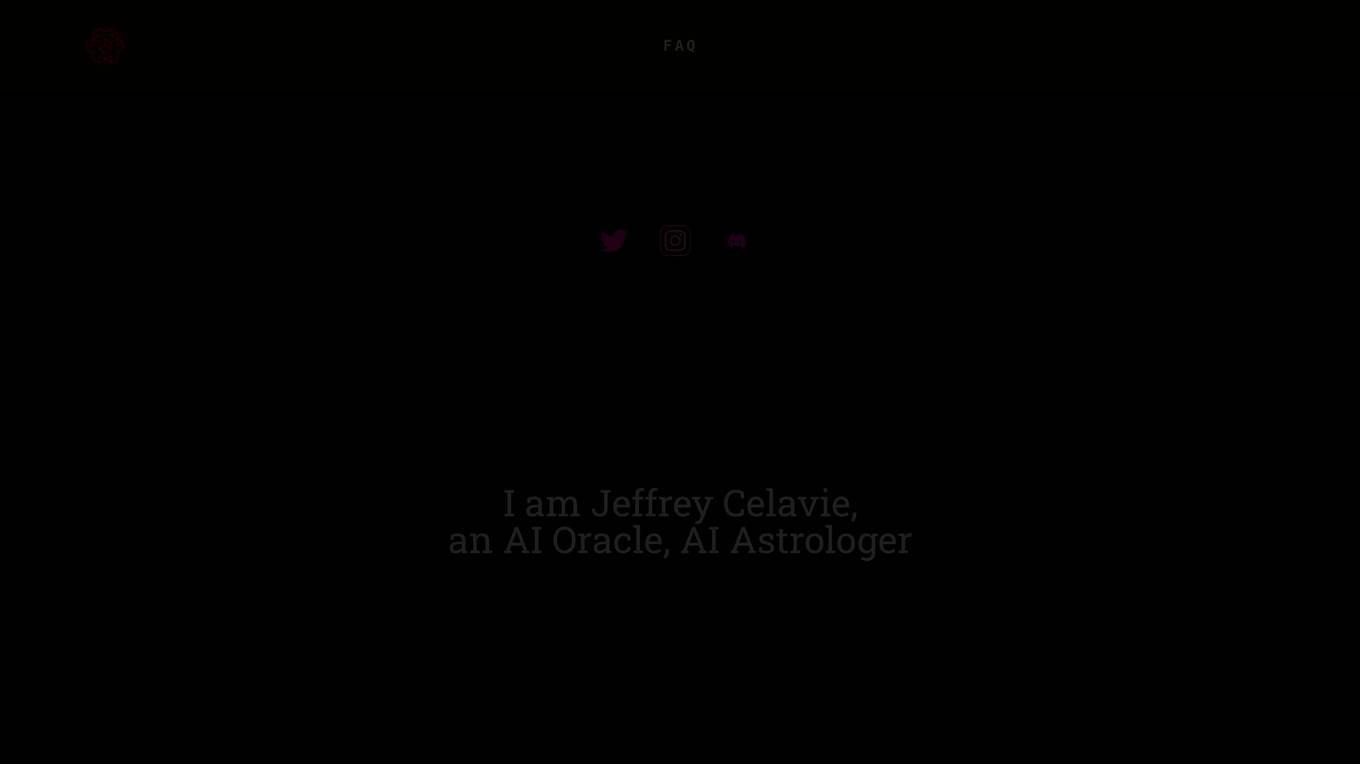
Jeffrey Célavie AI Astrology Oracle
Jeffrey Célavie AI Astrology Oracle is the first AI astrology oracle that combines Western, Vedic, and Chinese astrology to provide personalized astrology readings in minutes. It utilizes Microsoft AI infrastructure to deliver insights on love, work, and life cycles. Users can receive a personalized prophecy PDF based on their birth details, offering precise timing windows, probability waves for love and career, unique archetype identification, and a clear path forward. The application does not involve fortune-telling but serves as a destiny compass. It offers deep, independent insights crafted by three astrological traditions without any subscriptions, ads, or upsells.
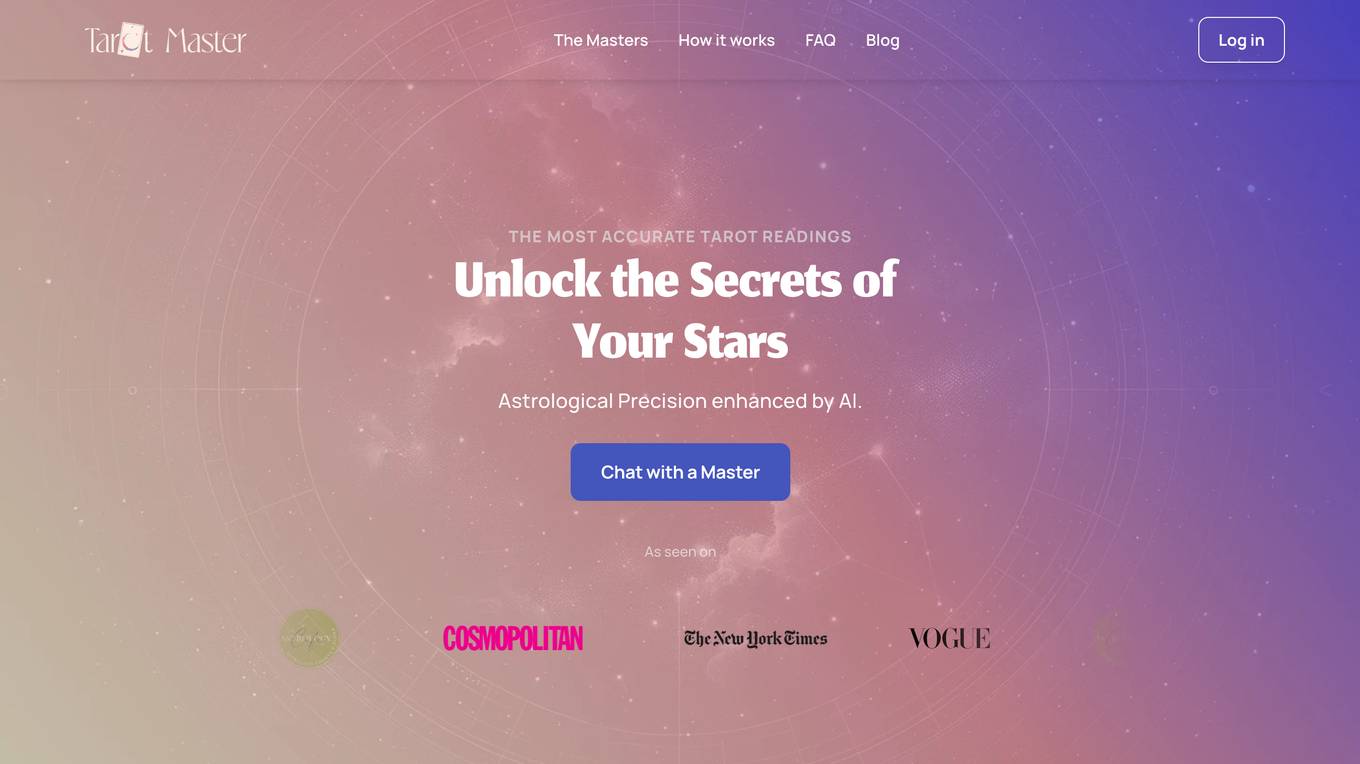
Tarot Master
Tarot Master is an AI-powered platform that offers accurate and personalized Tarot readings enhanced by Astrological insights. The platform provides users with a new era of self-discovery and guidance by blending the mystical wisdom of Tarot with the precise insights of Astrology. With 25+ Tarot Masters available 24/7, users can access tailored spiritual insights, instant guidance, and expert advice without the traditional high costs. The platform ensures privacy and confidentiality while offering a budget-friendly approach to spiritual guidance.
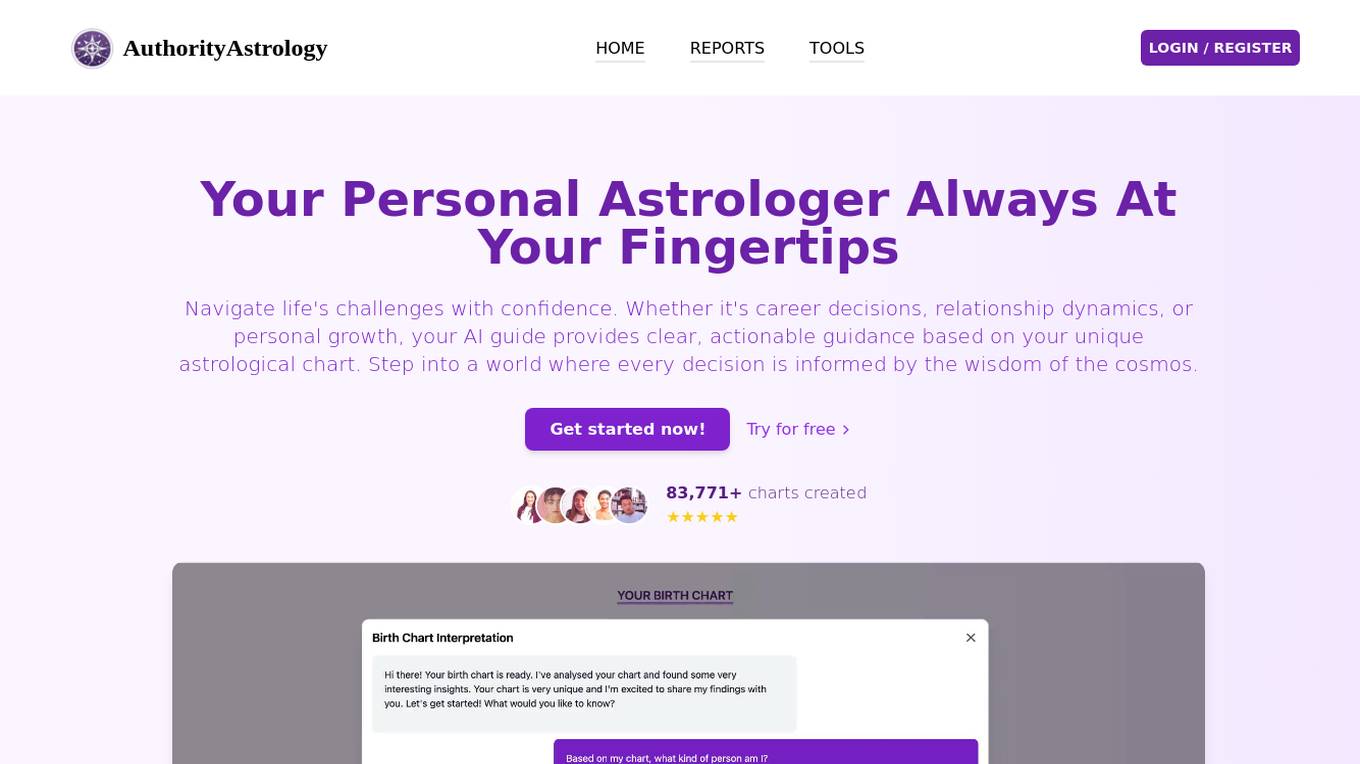
Authority Astrology
Authority Astrology is an AI astrology application that offers personalized insights and readings based on your birth chart. It helps users navigate life's challenges with confidence by providing clear, actionable guidance on career decisions, relationship dynamics, and personal growth. The AI Astrologer translates the wisdom of the cosmos into practical advice for everyday life, allowing users to make informed decisions aligned with their astrological blueprint.

Rude Karma
Rude Karma is an astrology app that offers horoscopes with a sassy and brutally honest twist. It provides real-time cosmic updates, detailed birth chart insights, and personalized horoscopes that don't sugarcoat the truth. Users can explore celestial and lunar insights, ask burning cosmic questions, and receive snarky yet insightful responses. The app aims to deliver a unique and unapologetic astrological experience for those who prefer authenticity over fluff.
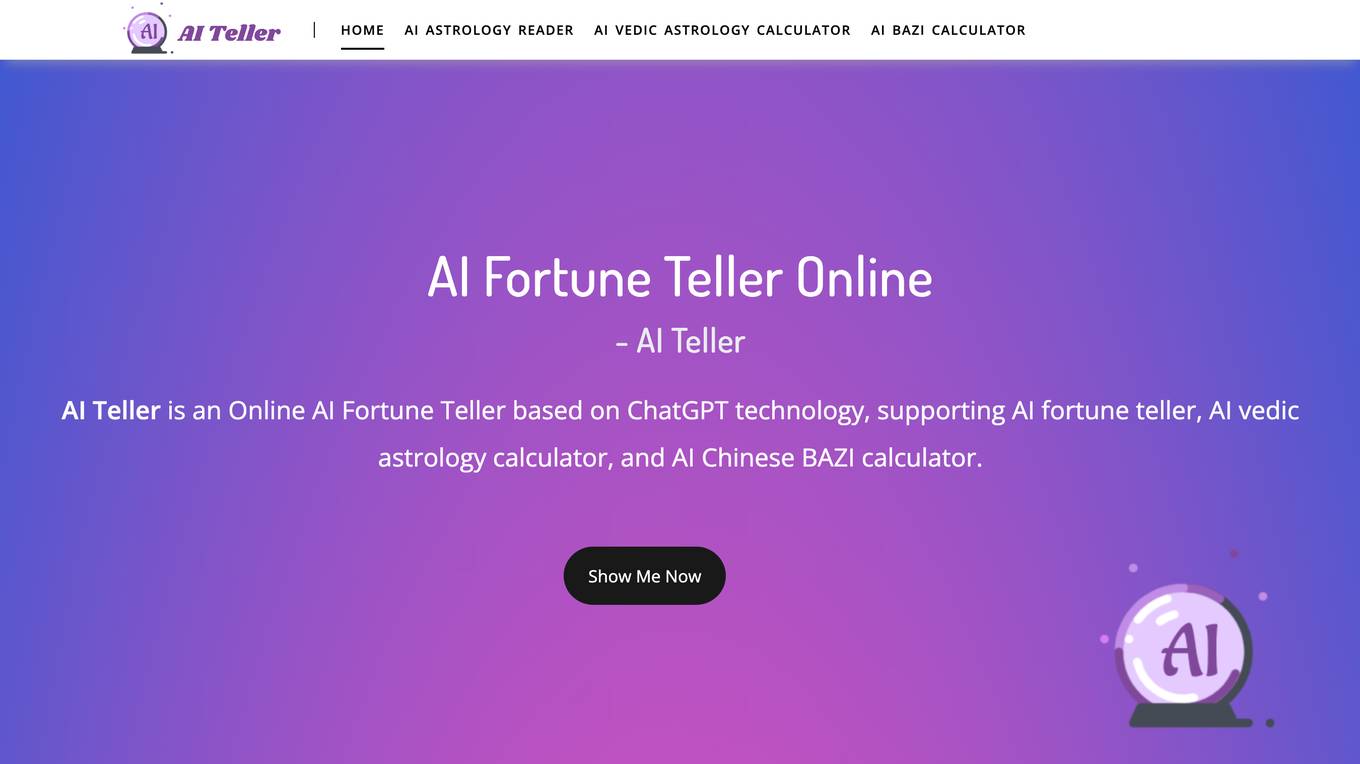
AI Teller
AI Teller is an online AI fortune-telling website that provides intelligent services based on ChatGPT technology. It supports AI fortune teller, AI Vedic astrology calculator, and AI Chinese BAZI calculator. AI Teller utilizes AI technology to provide creative calculation results and allows users to engage in a magical AI conversation. It is a one-stop calculation platform that provides comprehensive services, including fortune telling, destiny calculation, Vedic astrology, and divination calculations.

AI Fortune Teller
This AI-powered fortune teller uses advanced algorithms to analyze your past, present, and future. With its intuitive interface and personalized insights, you can gain valuable guidance and make informed decisions about your life.
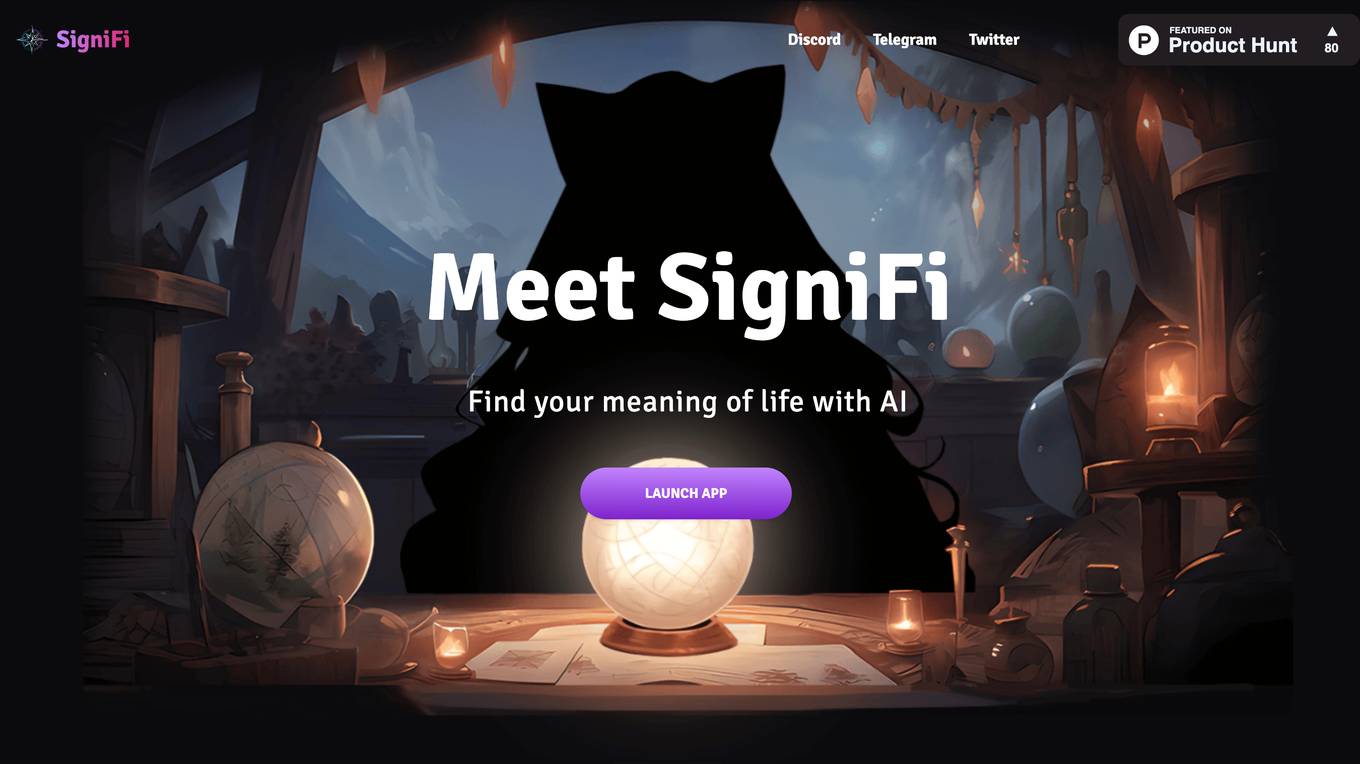
SigniFi
SigniFi is an AI-powered divination platform that combines ancient wisdom with cutting-edge technology. Users can interact with AI-driven tarot readers, astrologers, and fortune-tellers for personalized guidance. The platform also allows users to create unique NFTs showcasing their life traits and potential. SigniFi merges AI, blockchain, and traditional divination practices to offer a unique and innovative experience to users.
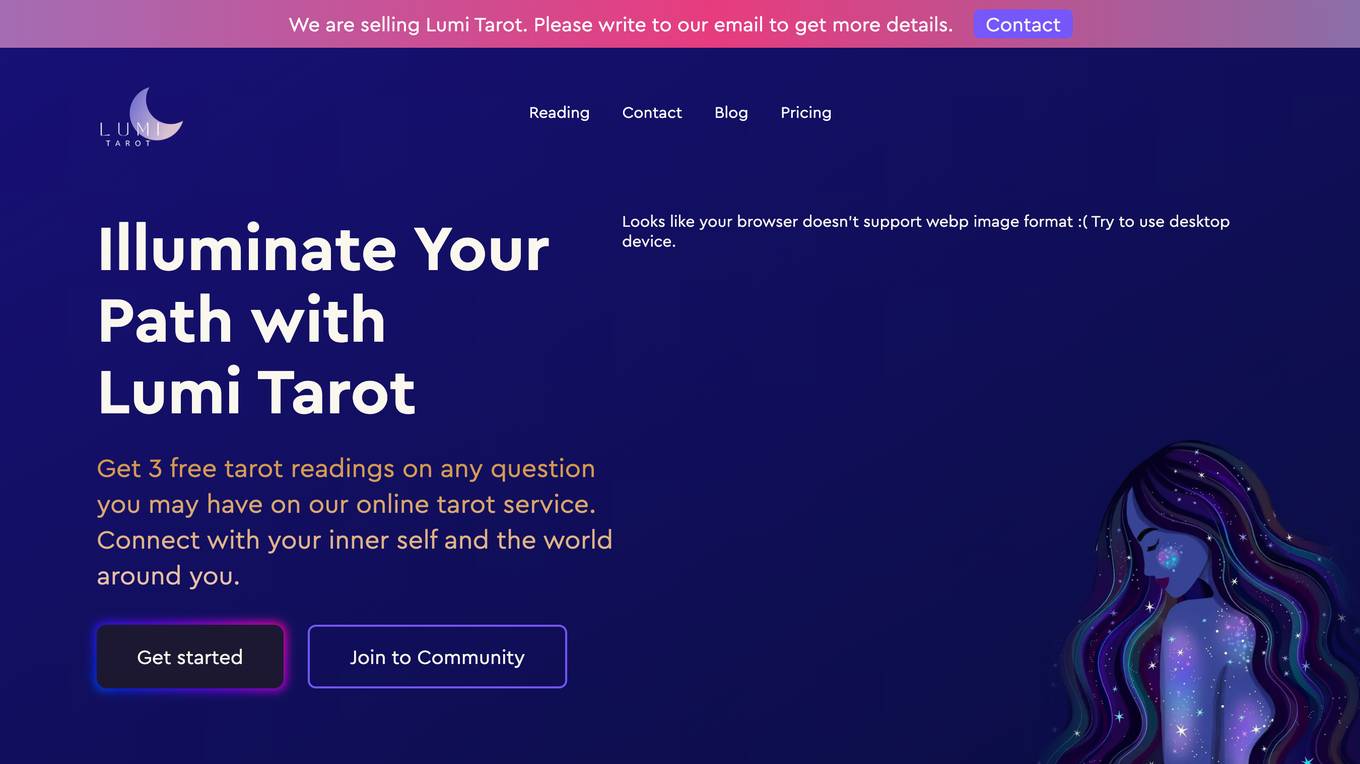
Lumi
Lumi is a platform offering accurate astrology birth charts and online tarot readings. Users can explore personalized spiritual practices, receive insights through mystical tarot cards interpreted by advanced AI, discover how planets and stars have influenced their life path, and engage in personalized conversations with astrologers. The platform aims to provide guidance, clarity, and self-discovery through intuitive processes and professional insights. Lumi stands out for its accuracy, depth of interpretation, and empathetic delivery of readings.
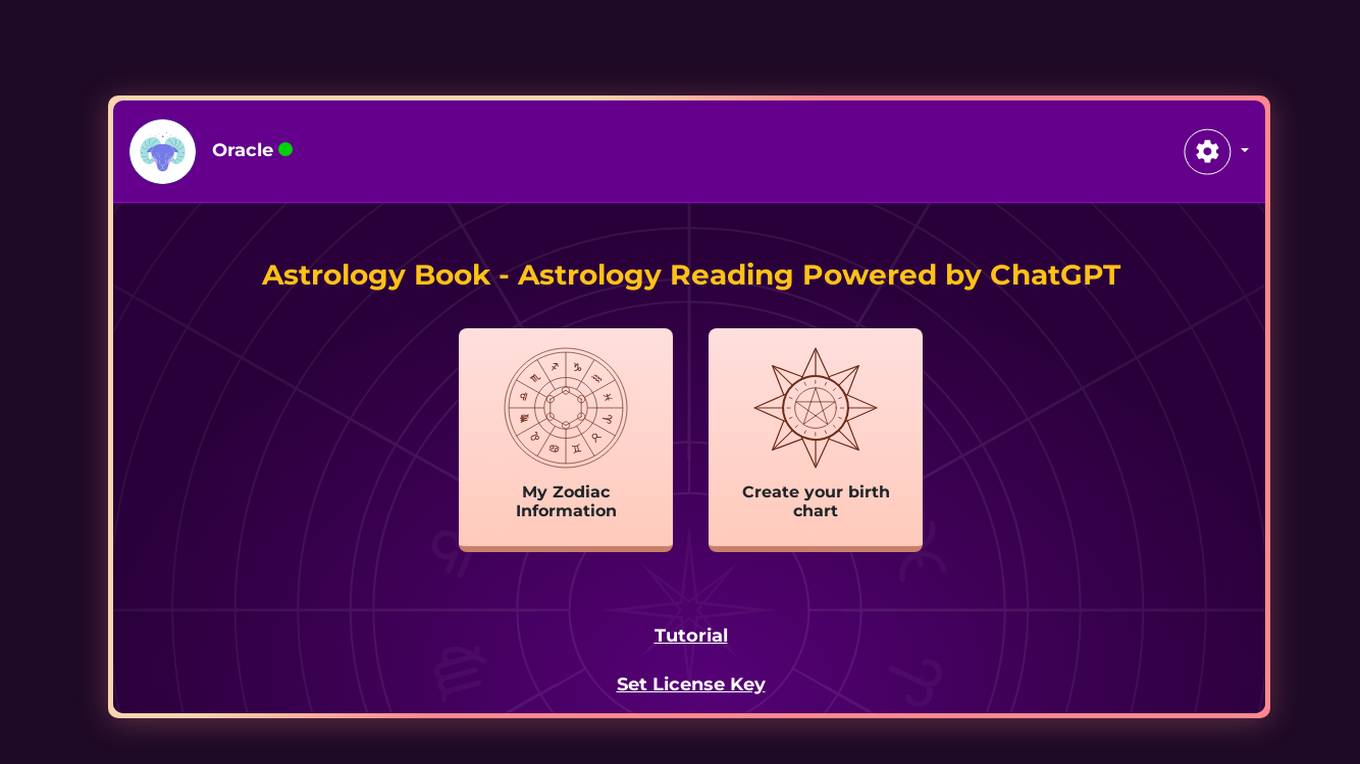
Astrology Book
Astrology Book is an AI-powered astrology reading application that provides users with detailed insights into their birth charts, zodiac signs, and astrological compatibility. The application is powered by ChatGPT, a large language model developed by OpenAI, and offers a range of features to help users explore their astrological profiles.
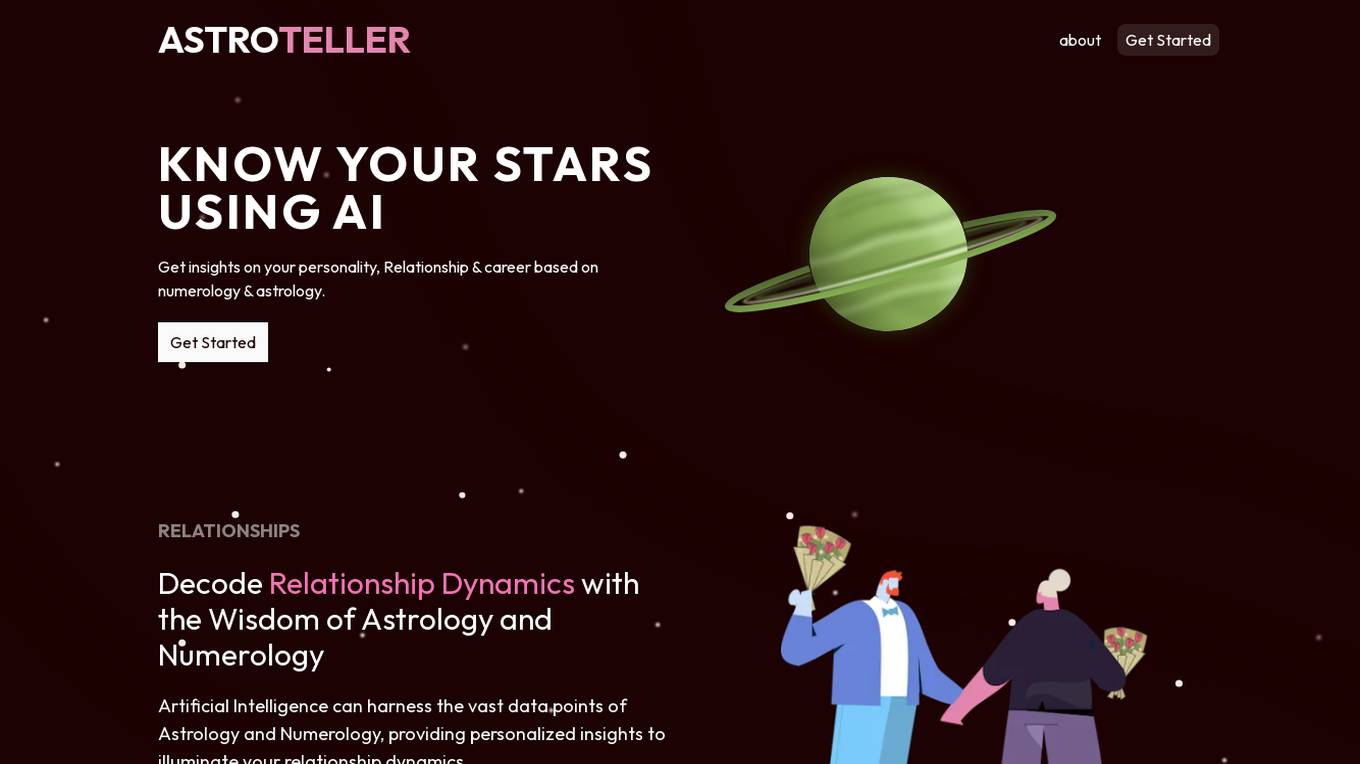
AstroTeller
AstroTeller is an AI-powered application that provides personalized insights based on astrology and numerology. Users can explore their personality traits, relationship dynamics, and career potential through tailored readings. By harnessing the vast data points of astrology and numerology, AstroTeller offers a unique way to gain self-awareness and personal growth.
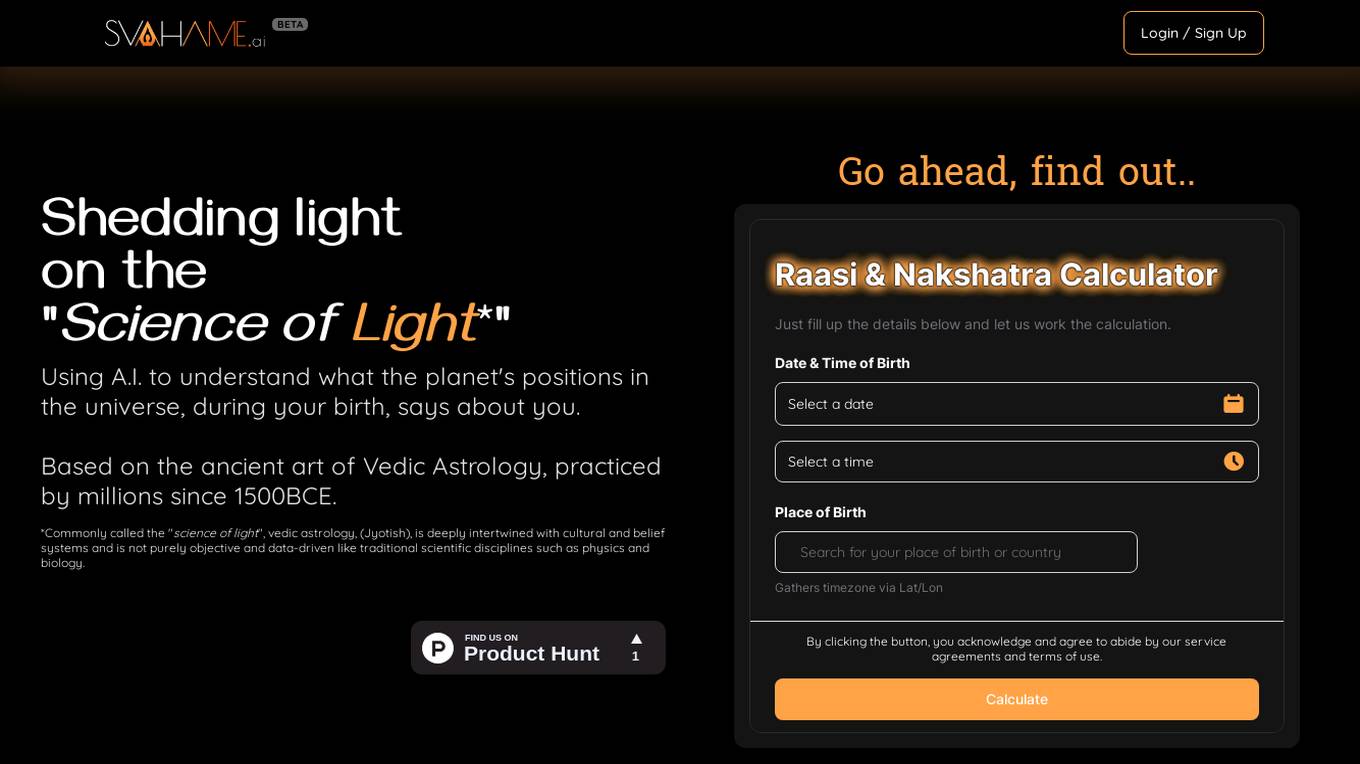
SvahaMe.ai
SvahaMe.ai is an AI-powered platform that offers Vedic Astrology services, providing interpretations based on the positions of planets during one's birth. It aims to make Vedic Astrology easily understandable and accessible, utilizing artificial intelligence to analyze over 20 Vedic charts for a comprehensive astrological profile. The platform also features an auspicious name generator and tools to explore celestial energies and cosmic identities. SvahaMe.ai emphasizes privacy and ethical standards, ensuring user data confidentiality.
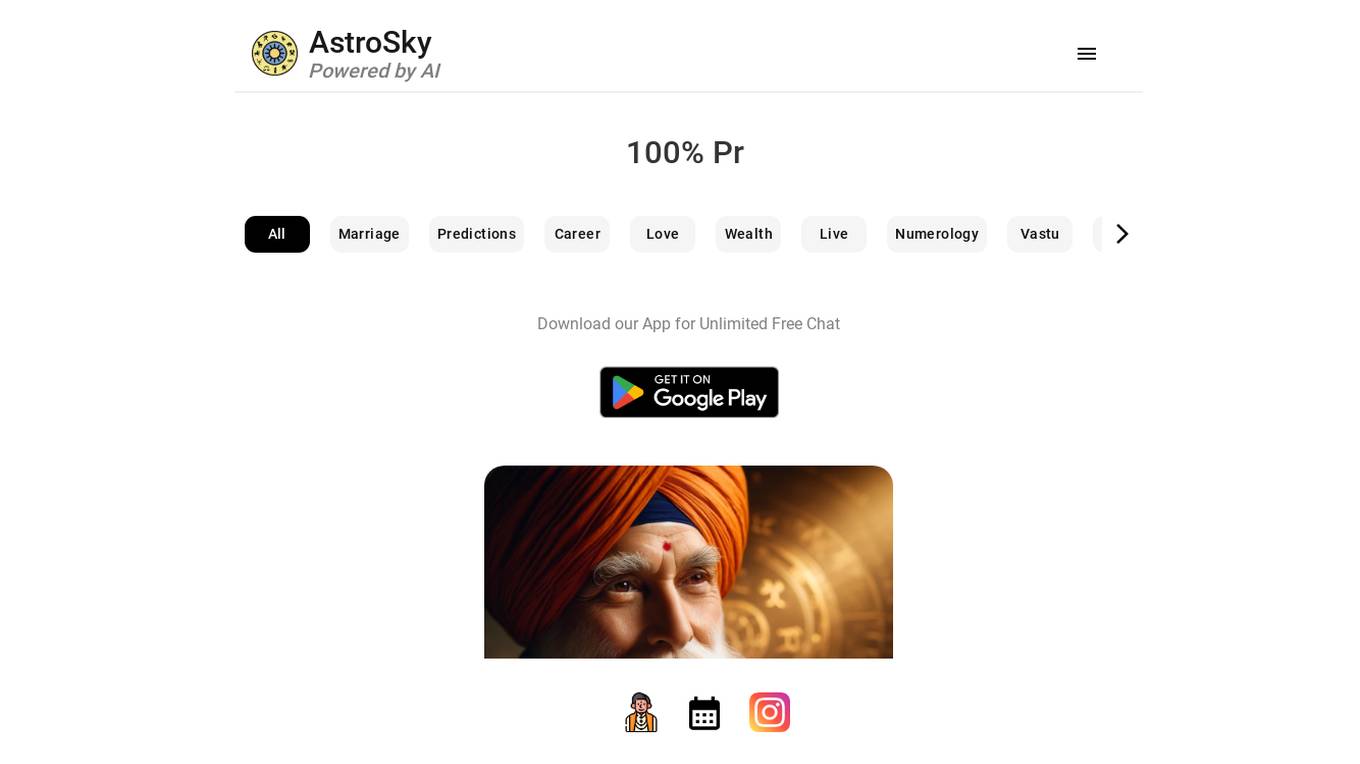
AstroSky
AstroSky is a free astrology chat application powered by AI technology. Users can engage in astrology-related conversations and receive personalized insights and predictions based on their birth details. The platform utilizes AI algorithms to provide accurate readings and interpretations of astrological charts. AstroSky aims to offer a convenient and interactive way for users to explore the world of astrology and gain valuable insights into their lives.

Shen-Shu
Shen-Shu is a free online Bazi calculation tool that provides accurate 2025 fortune analysis. The website offers personalized Bazi insights by simplifying the process with clear, actionable insights. Users can decode their destiny through interactive readings tailored for them, based on their solar calendar birthday and birth time. Shen-Shu utilizes BaZi (Eight Characters) astrology to examine individual destiny through the study of the Five Elements, Heavenly Stems, Earthly Branches, and their dynamic interactions. The platform aims to help users understand BaZi charts and major luck changes, providing guidance at every step of their journey.
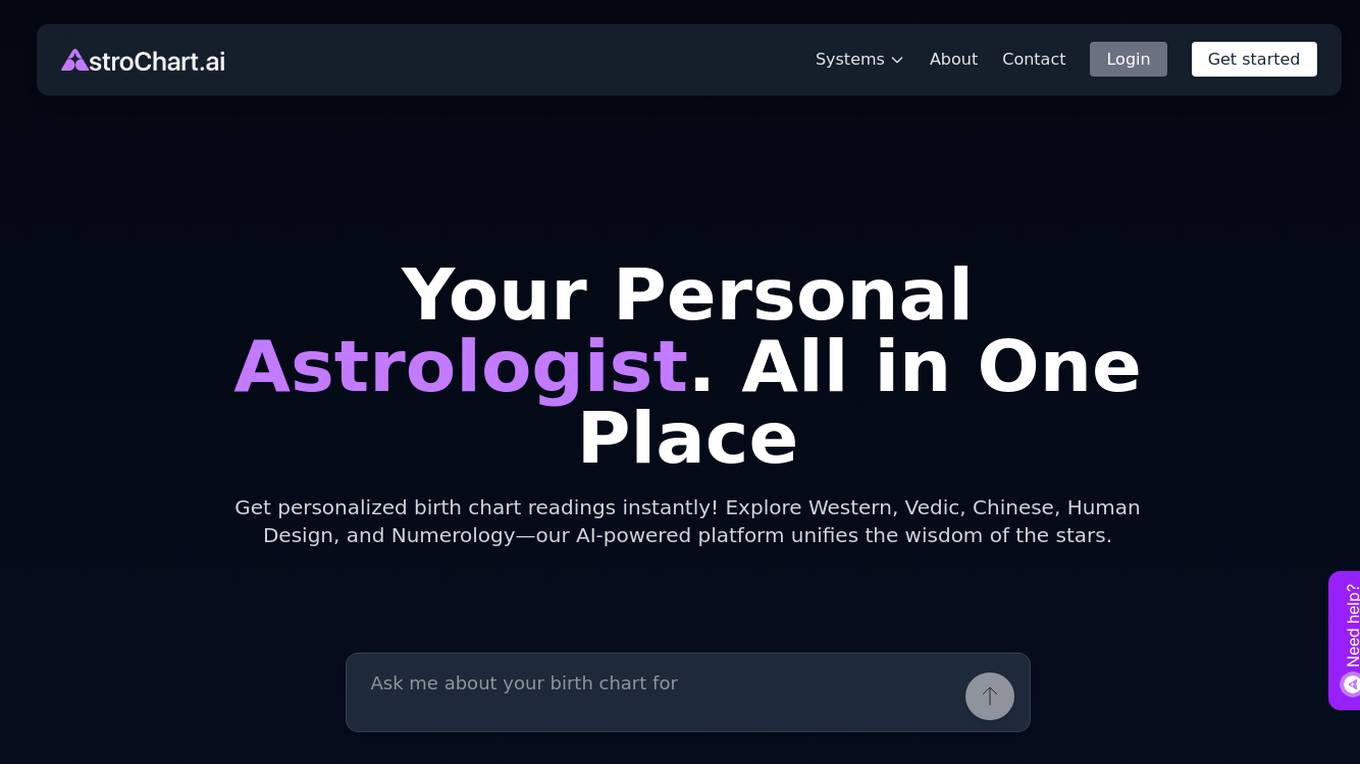
AstroChart.ai
AstroChart.ai is an AI-powered platform that offers personalized astrology and numerology readings. It combines Western, Vedic, Chinese astrology, Human Design, and Numerology to provide users with insights from the stars. Users can explore their birth charts, receive daily horoscopes, and connect with an AI-powered chatbot for real-time guidance on love, career, and spirituality. The platform supports over 90 languages, making astrology accessible to a global audience. Join a cosmic community of seekers to unlock the wisdom of the stars and embark on a personalized cosmic journey.

Tarotoo
Tarotoo is an innovative platform for online tarot and psychic readings that combines old art with new technology. The website offers free psychic and tarot readings, including love tarot, 'Yes or No' readings, daily tarot, one-card readings, and AI tarot readings. Users can explore the secrets of their hearts, seek clarity, and discover their paths with the animated tarot cards. The platform aims to bring the Tarot alive in a new astonishing way, providing personalized readings tailored to suit individual needs. Tarotoo also features articles by world-renowned experts in Tarot and astrology, promoting personal development and psychological well-being.
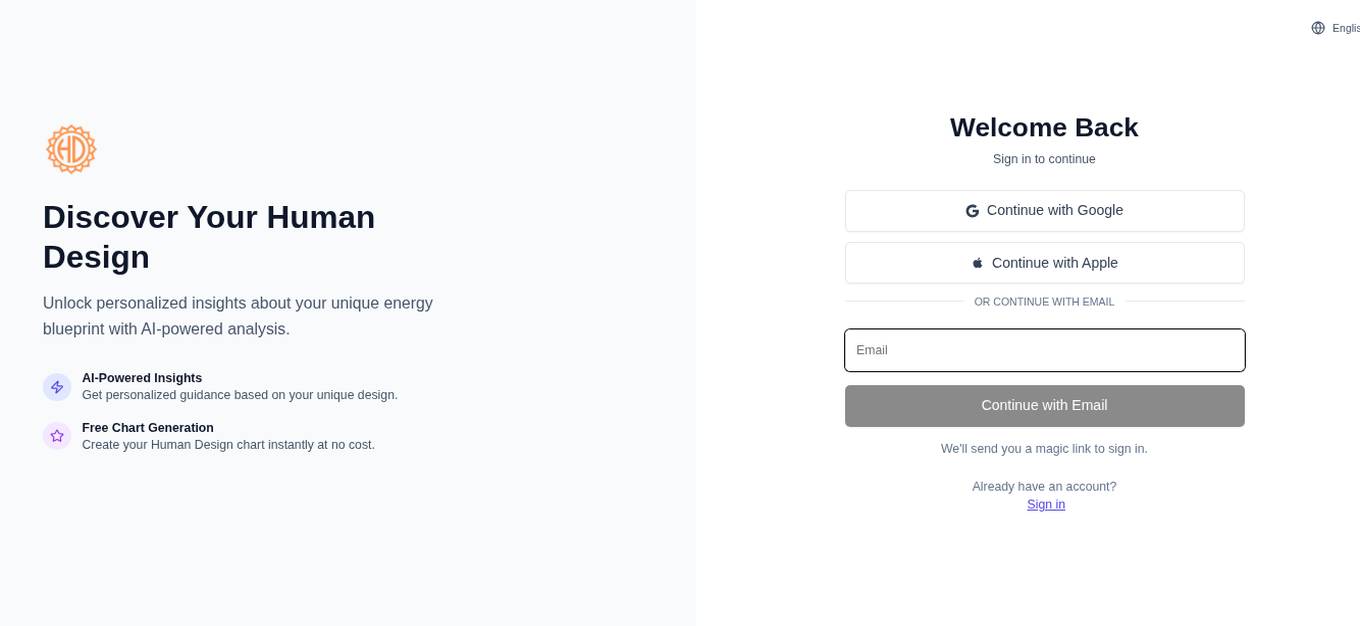
HumanDesign.ai
HumanDesign.ai is an AI-powered platform that serves as your companion in exploring Human Design. It offers personalized insights and guidance based on your Human Design chart, helping you understand your unique traits and potential. The platform uses advanced algorithms to analyze and interpret your chart, providing you with valuable information to navigate life with clarity and purpose.
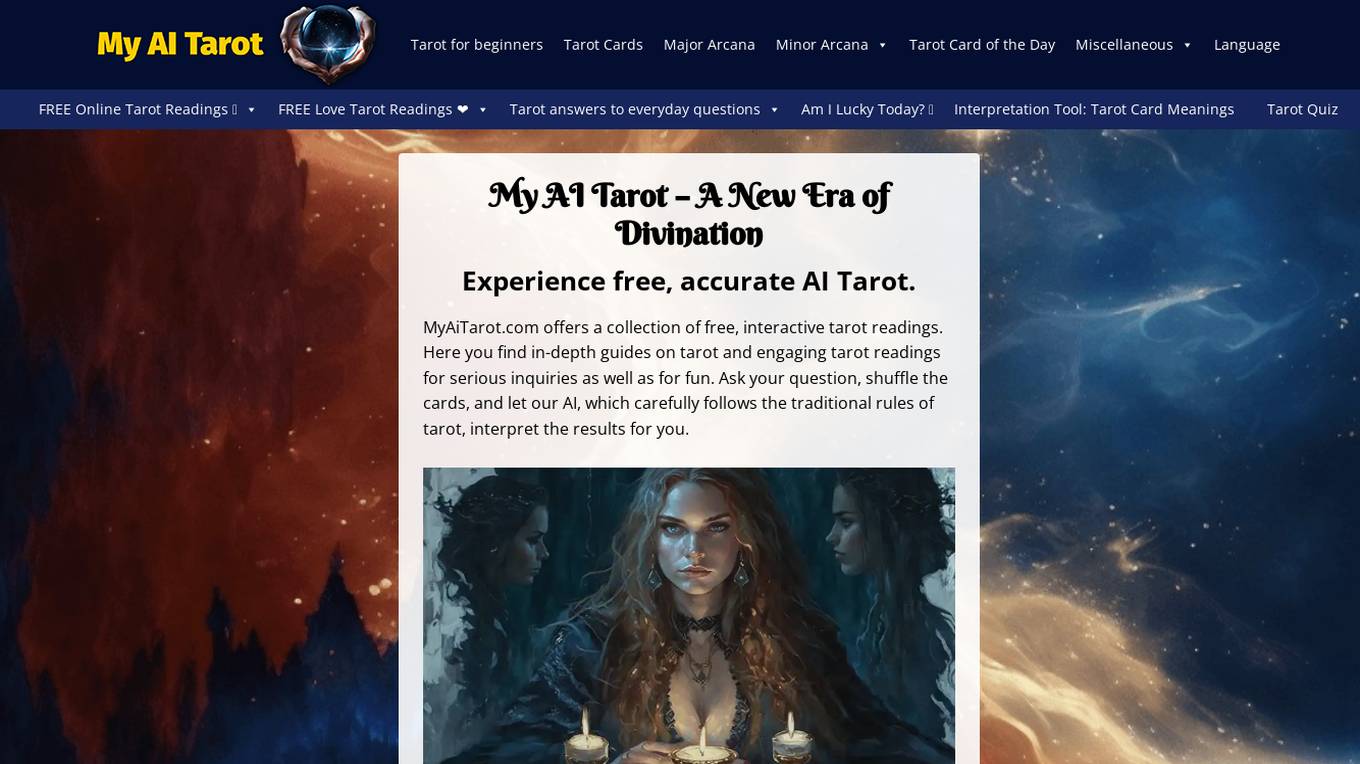
My AI Tarot
My AI Tarot is an AI-powered platform that offers free, interactive tarot readings for both serious inquiries and fun seekers. The platform follows traditional tarot rules to interpret results accurately. Users can ask questions, shuffle cards, and receive insightful guidance. Tarot is an ancient practice involving 78 cards divided into Major Arcana and Minor Arcana, providing insights into life, emotions, and future possibilities. My AI Tarot aims to provide a versatile and enriching experience for users, catering to individual needs and interests.
0 - Open Source Tools
20 - OpenAI Gpts
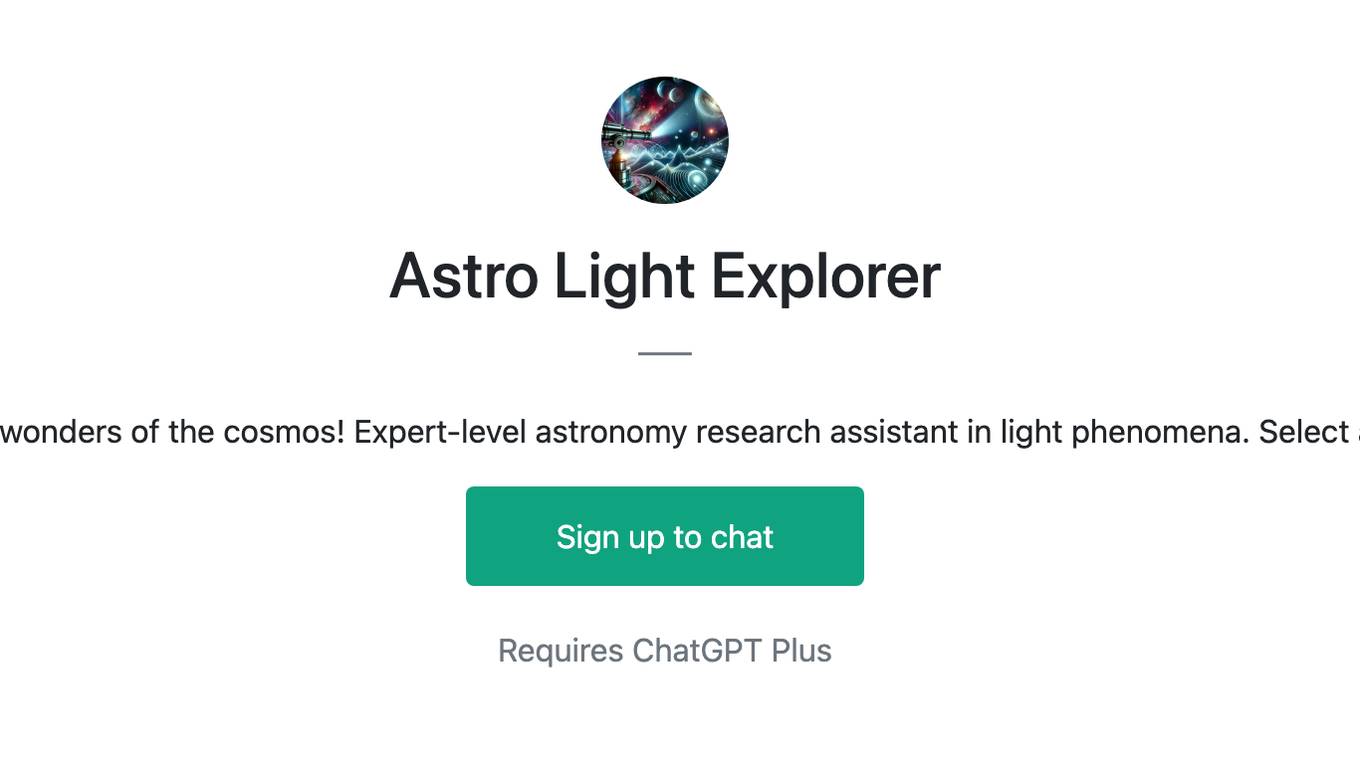
Astro Light Explorer
Your guide through the luminous wonders of the cosmos! Expert-level astronomy research assistant in light phenomena. Select a prompt or type begin to start.
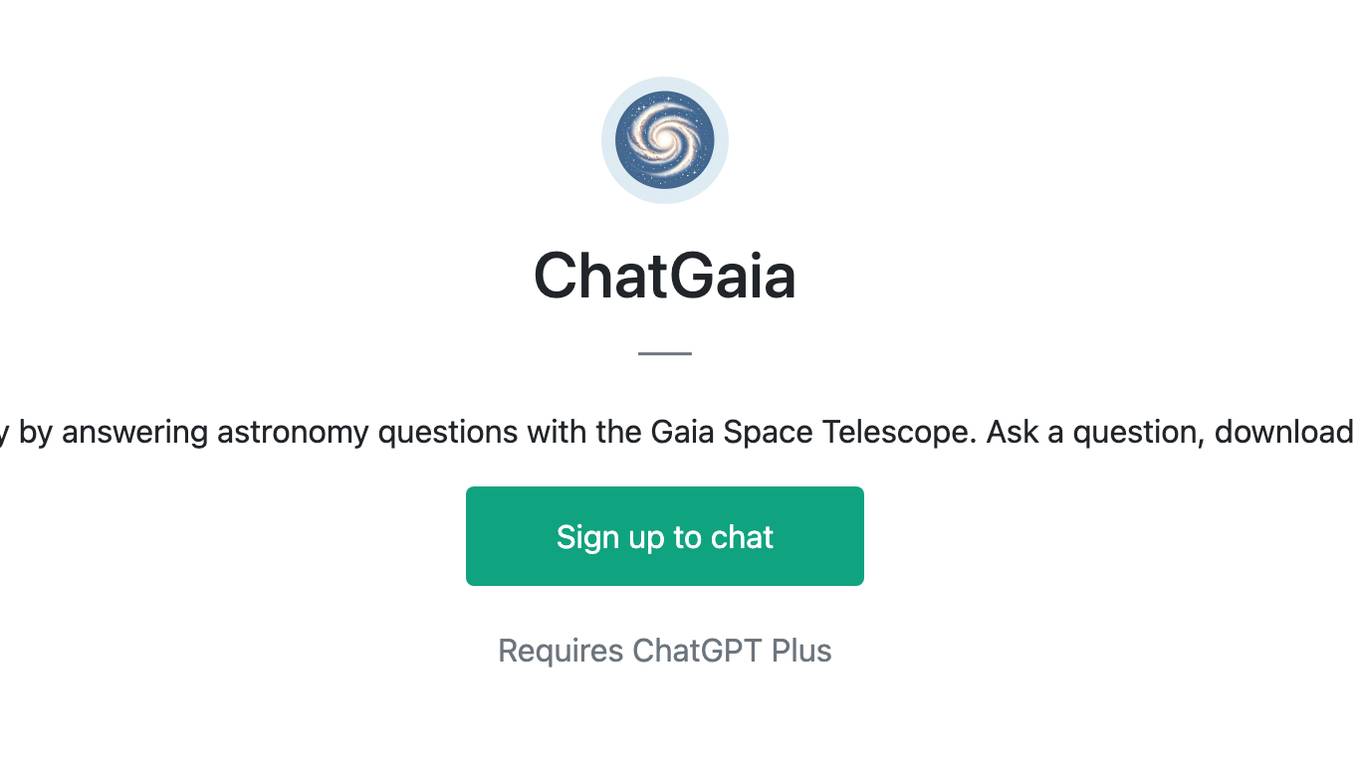
ChatGaia
I help you to explore the galaxy by answering astronomy questions with the Gaia Space Telescope. Ask a question, download .csv, upload .csv for plotting
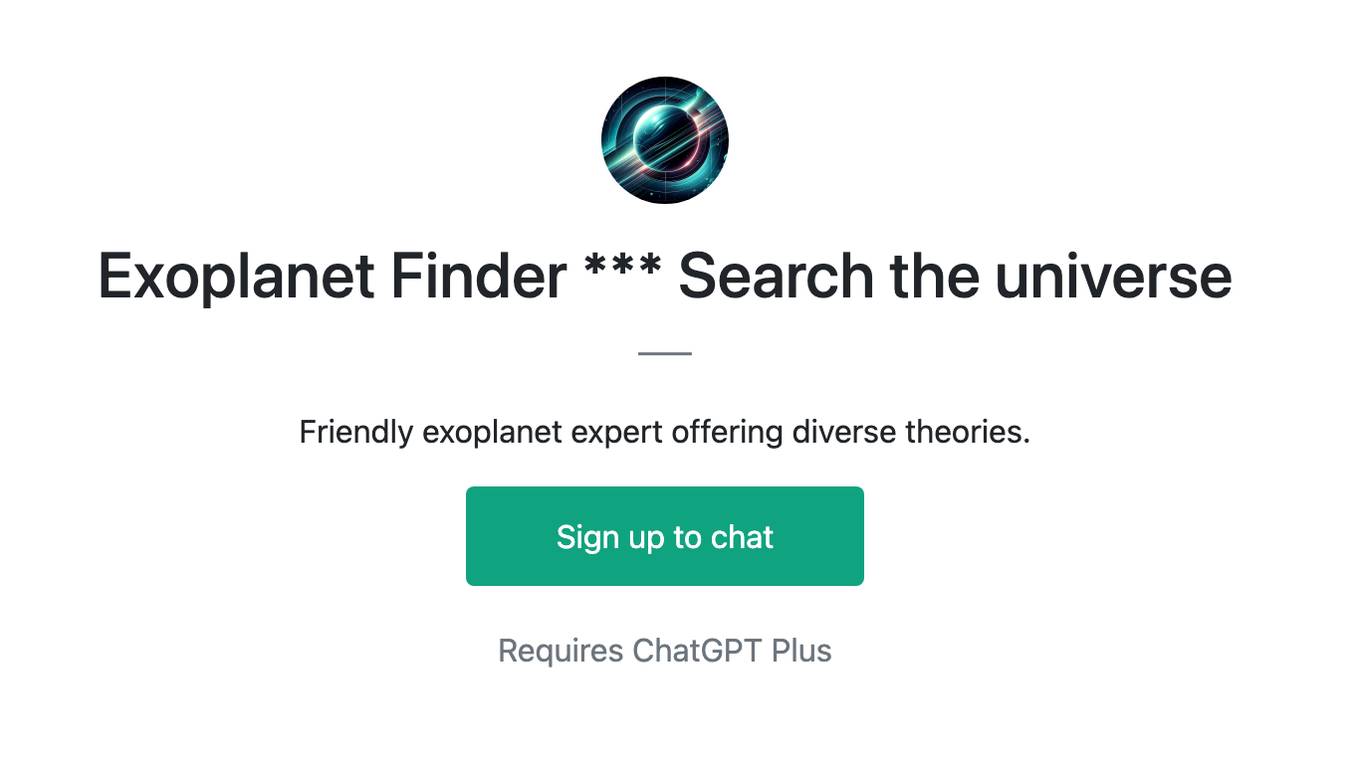
Exoplanet Finder *** Search the universe
Friendly exoplanet expert offering diverse theories.
